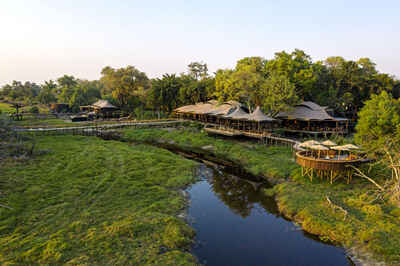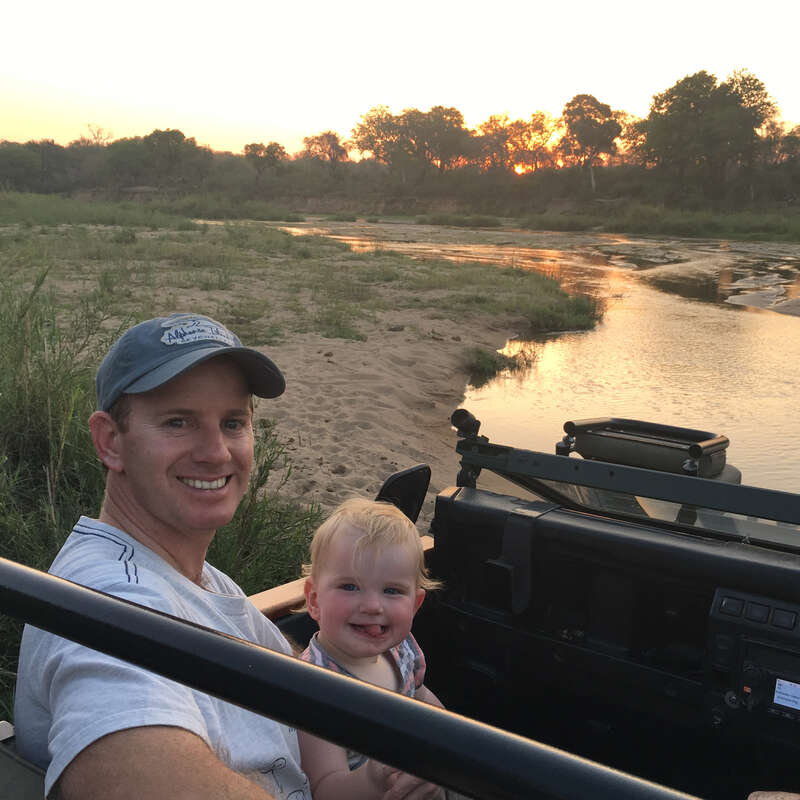About Xigera Safari Lodge
Xigera (pronounced 'keejera') is within a private area of Botswana's Moremi Game Reserve, in the heart of ...
... the Okavango Delta. When the water levels are high in the Delta, it feels as if water is everywhere around the camp, and the luxuriant vegetation makes this seem one of the Delta's most tropical corners.
Xigera Camp changed hands in 2019. It was subsequently re-built and re-opened as 'Xigera Safari Lodge' in December 2020 - having been extensively re-modelled. Considerable opulence and comfort are now its hallmarks, and it caters unashamedly for those who will want room service, air-conditioning and flat-screen TVs as part of their Delta experience.
Xigera's location offers visitors the kind of lush, watery experience that many first-time visitors might expect in the Okavango Delta: not the best for big-game, but ideal for water-based activities and a totally tropical feel.
It's now one of the most luxurious, even palatial, lodges in the Okavango - with a very substantial price tag to match. Air-conditioning, satellite TV channels and room service are the norm in five-star hotels, but not yet in the camps in the Okavango. So is the new Xigera a trail-blazer of what's to come?
Or a profligate use of resources for travellers who insist upon having every luxury, even here?
The jury's currently out...
Our view
Xigera's location offers visitors the kind of lush, watery experience that many first-time visitors might expect in the Okavango Delta: not the best for big-game, but ideal for water-based activities and a totally tropical feel.
It's now one of the most luxurious, even palatial, lodges in the Okavango - with a very substantial price tag to match. Air-conditioning, satellite TV channels and room service are the norm in five-star hotels, but not yet in the camps in the Okavango. So is the new Xigera a trail-blazer of what's to come?
Or a profligate use of resources for travellers who insist upon having every luxury, even here?
The jury's currently out...
Accommodation
12 suites
Children
Best for 13+
Open
All year
Activities

4WD Safari

Birdwatching

Boat trip

Guided walking safari

Helicopter

Mokoro

Night drive

Private activities
Traveller reviews of Xigera Safari Lodge
36 real, un-edited reviews from Expert Africa's travellers.
Arrived 27 May 2023, 3 nights
"Xigera Safari Lodge review"
Overall rating: Excellent
Arrived 2 May 2018, 3 nights
"Xigera review"
Overall rating: Good
Arrived 25 Sep 2017, 3 nights
"Xigera was our favourite camp"
Overall rating: Excellent
Arrived 19 May 2017, 3 nights
"Fantastic camp!"
Overall rating: Excellent
Arrived 16 May 2017, 3 nights
"Xigera review"
Overall rating: Excellent
Arrived 18 Sep 2016, 3 nights
"Xigera review"
Overall rating: Excellent
Arrived 14 Aug 2016, 2 nights
"Very enjoyable"
Overall rating: Excellent
Arrived 22 Aug 2015, 2 nights
"Xigera review"
Overall rating: Excellent
Arrived 26 May 2015, 2 nights
"Great place for a wet safari"
Overall rating: Excellent
Arrived 17 May 2015, 2 nights
"Xigera"
Overall rating: Excellent
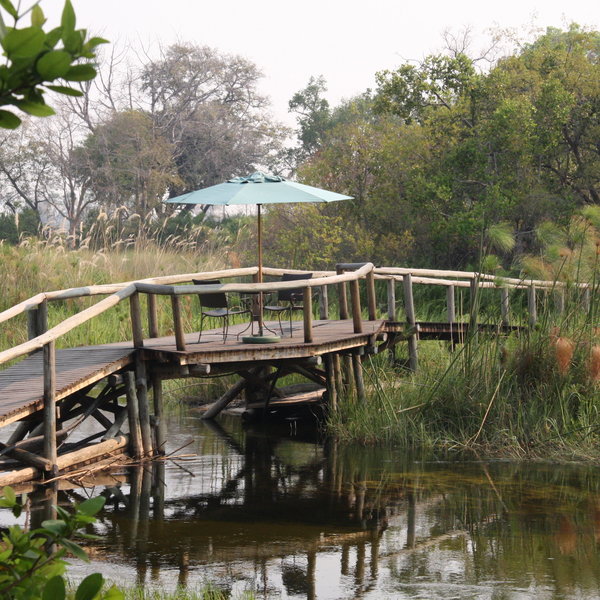
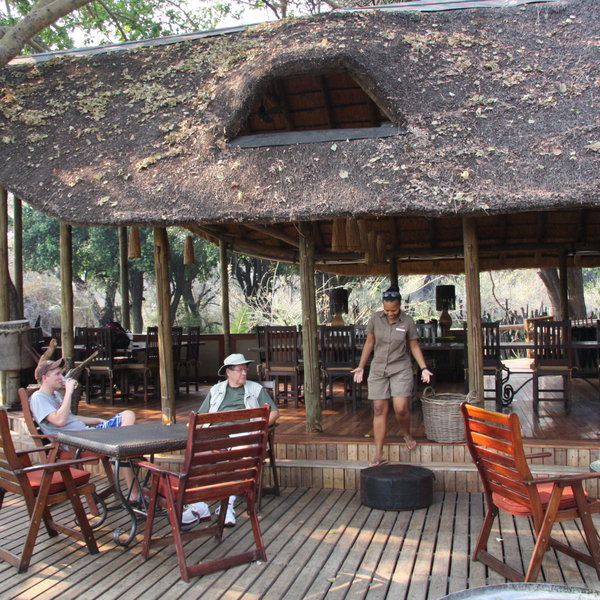
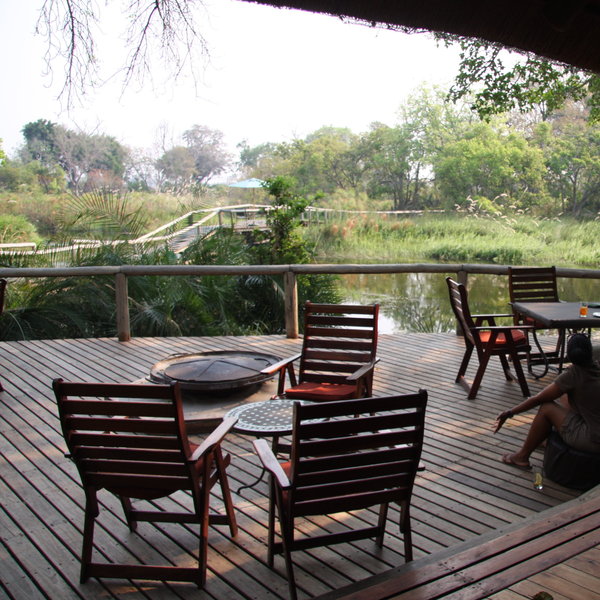
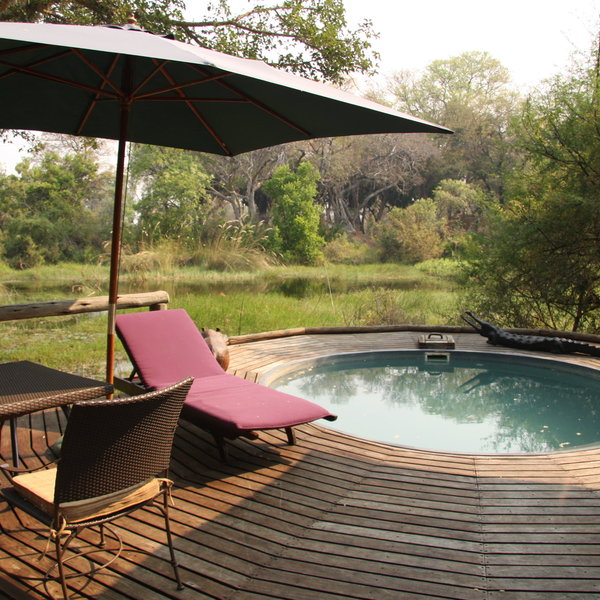
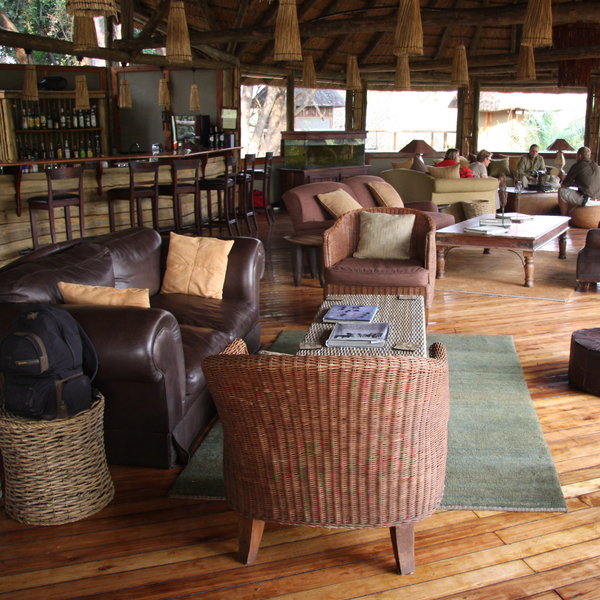
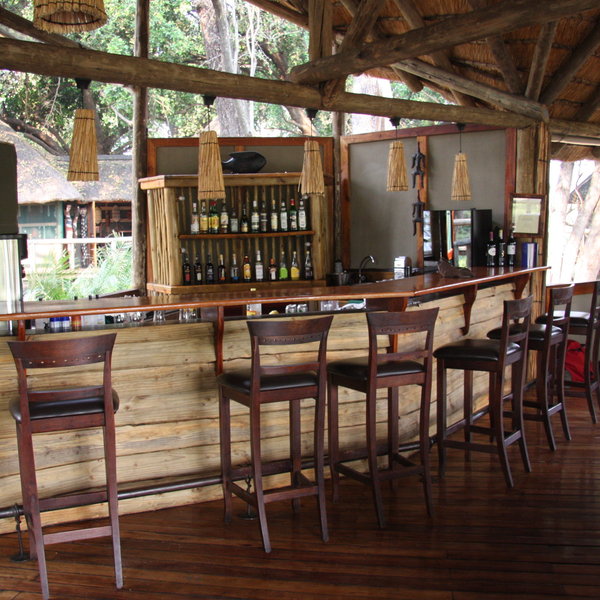
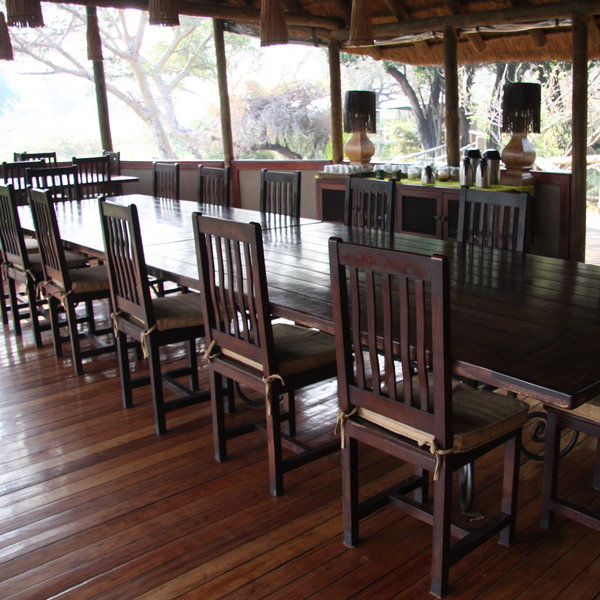
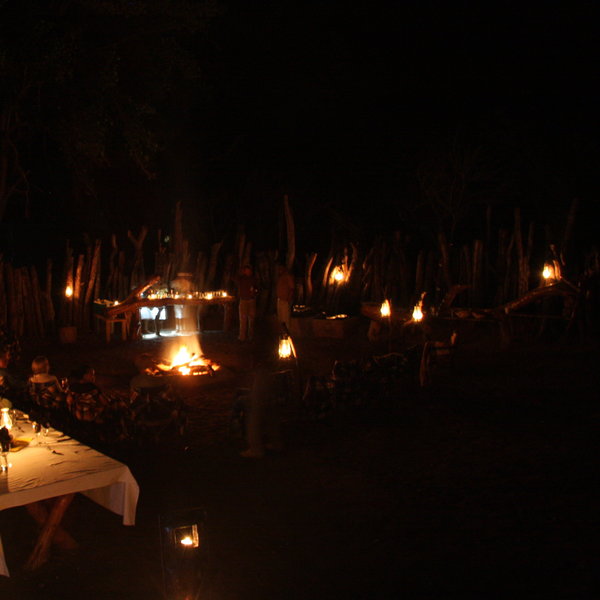
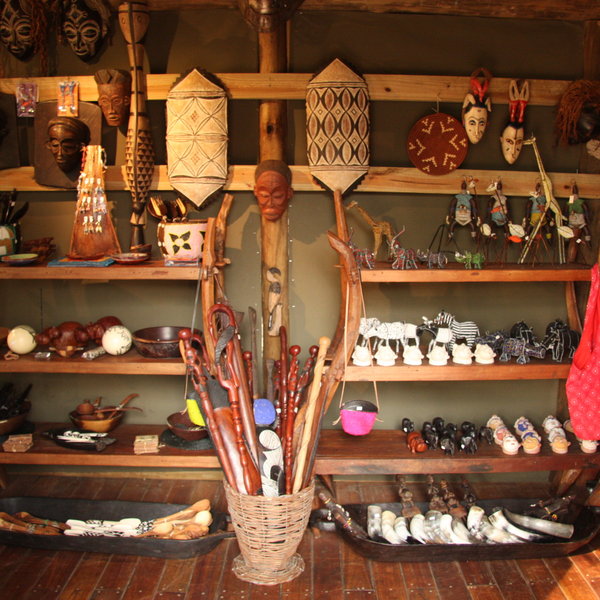
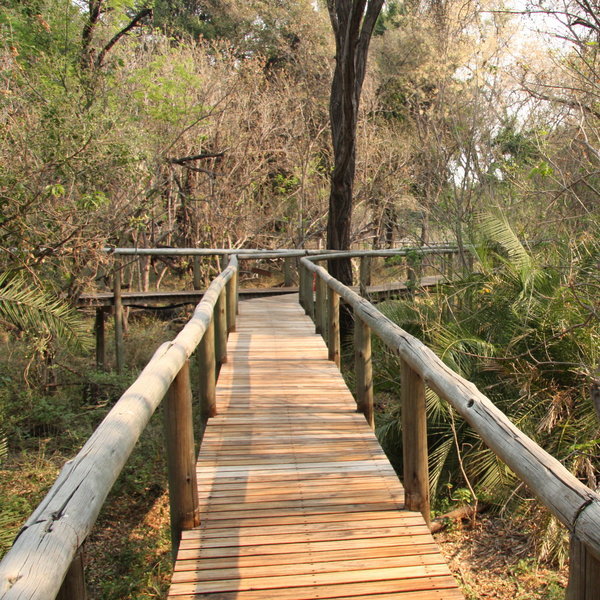
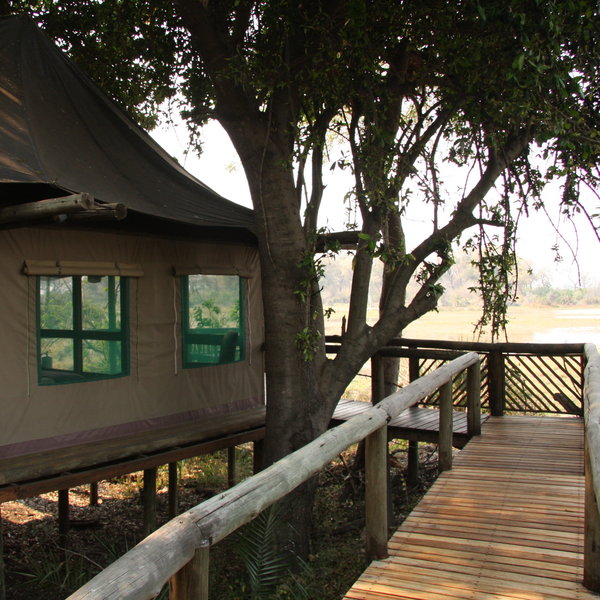
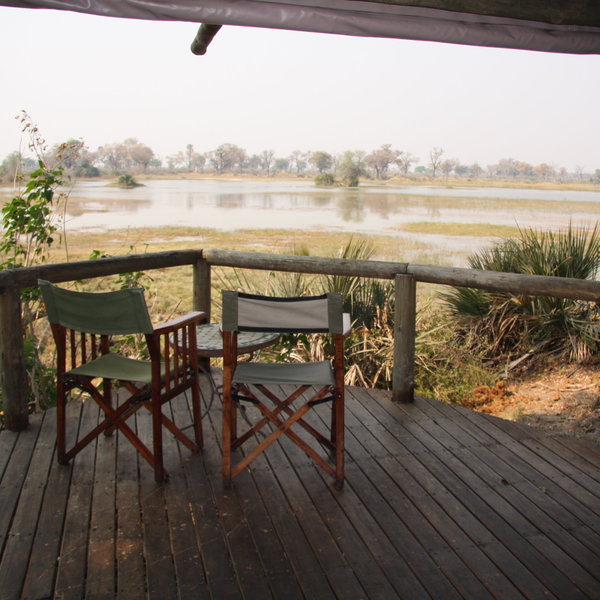
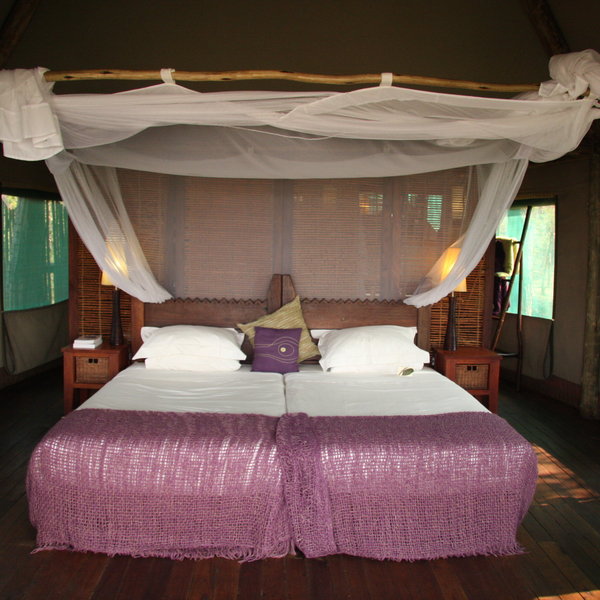
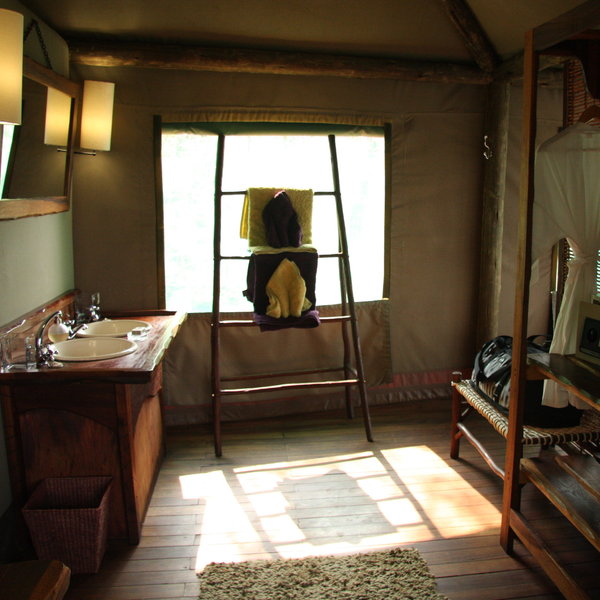
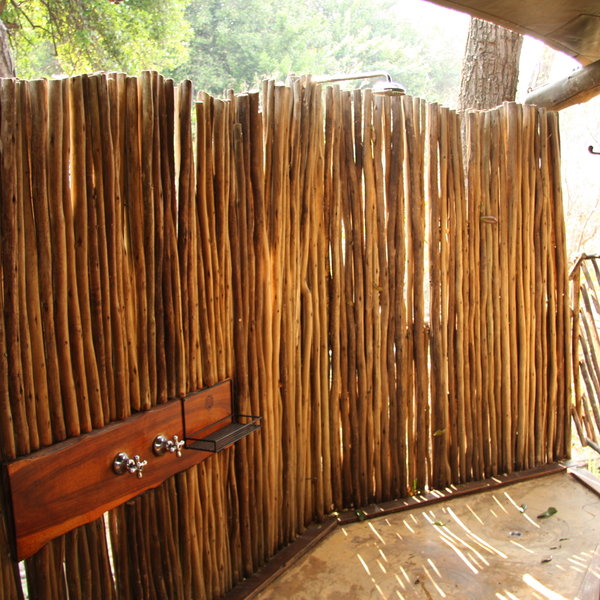
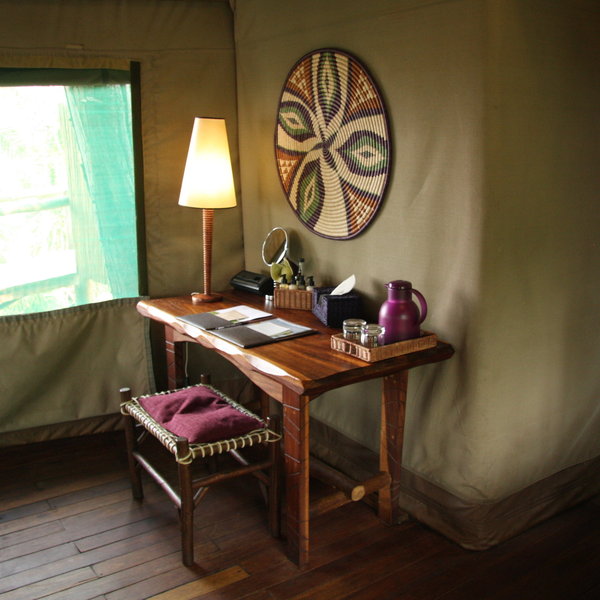
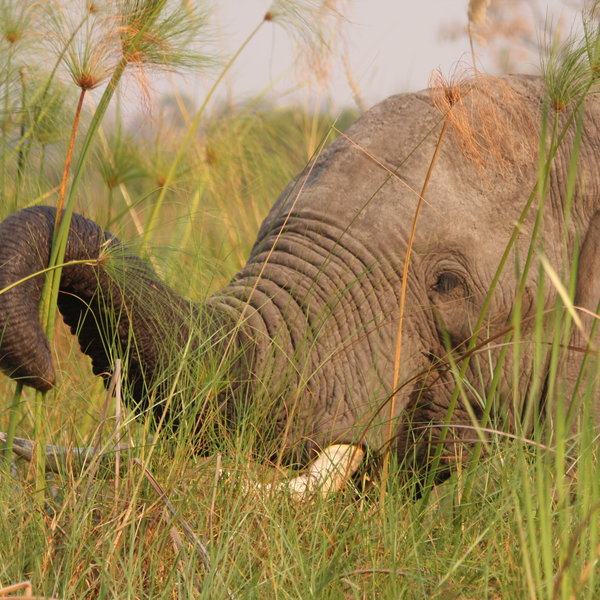
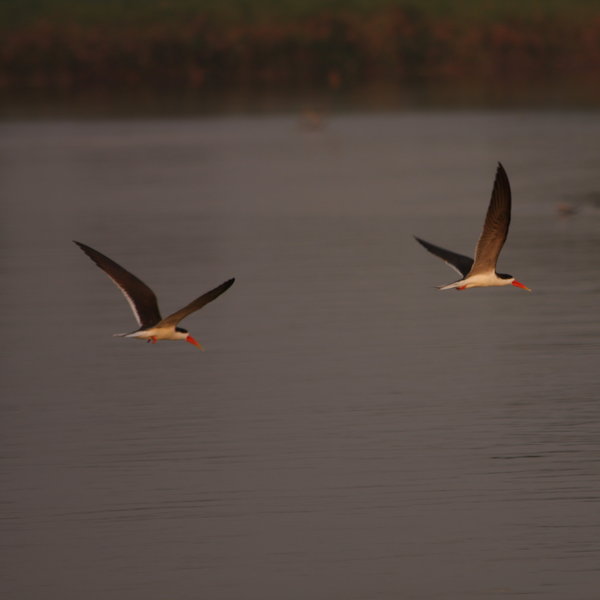
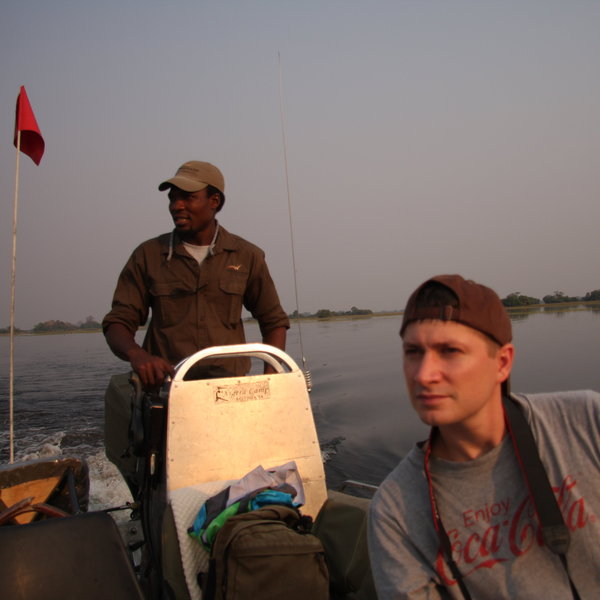
Expert Africa's gallery
When we travel we take lots of photos ourselves to give you a real and un-edited view of the safaris. See our 65 pictures of Xigera Safari Lodge to get the candid view.
View galleryXigera Safari Lodge: Our full report
Xigera (pronounced 'keejera') is within a private area of Botswana's Moremi Game Reserve, in the heart of ...
... the Okavango Delta. When the water levels are high in the Delta, it feels as if water is everywhere around the camp, and the luxuriant vegetation makes this seem one of the Delta's most tropical corners.
Xigera Camp changed hands in 2019. It was subsequently re-built and re-opened as 'Xigera Safari Lodge' in December 2020 - having been extensively re-modelled. Considerable opulence and comfort are now its hallmarks, and it caters unashamedly for those who will want room service, air-conditioning and flat-screen TVs as part of their Delta experience.
The latest and most palacial incarnation of Xigera has 12 suites, each constructed from cedarwood topped by a sensuously-curving canvas roof, and each with endless views of the floodplains. Eleven of these suites are “standard” suites, designed for two people, with a separate lounge, bedroom and dressing room area - as well as outside space. All are raised high enough to have game wander underneath, and each is named, and themed, after a local tree (The Jackalberry Suite, The Sycamore Suite, etc...)
There is also one larger Family Suite, the 'Xigera Family Suite' which consists of two en-suite bedrooms which share a very lovely lounge that opens out onto a wide deck overlooking the Okavango Delta.
Each suite is very large (184m2) and features a private deck with gazebos, a king-size daybed, indoor and outdoor shower, full en-suite facilities, tinted glass windows (to keep the room at even temperatures), good wi-fi and, unusually for Botswana, air-conditioning and satellite TV. Room service is available and a 'butler store' in each suite has a fridge, a kettle, plates, cutlery and glasses.
The decor in each suite is unique, with a common theme of wooden, four-poster beds, tasteful cream panels and wooden walls. In some suites (most notably the Sausage Tree Suite), the interior designers were fearless in their mixing of colours, patterns and styles - straying far from the subtle hues of most safari camps.
The opulence and sheer space extend into the main areas of the lodge where in addition to the grand lounge and dining room, there's a bar and wine cellar, an air-conditioned library, traditional boma and out-door fire pit, star deck, swimming pool, gym and wellness centre and spa, and a very smart little boutique.
Activities from Xigera include motorboat and mokoro excursions, morning and afternoon game drives (these are dictated by water levels) catch and release fishing (seasonal), walking safaris and scheduled yoga sessions. At an extra cost guests can also enjoy private yoga sessions, spa treatments and scenic helicopter flights.
At Expert Africa, we have known Xigera since 1998, when we first visited and started sending our travellers here. The camp stands on the edge of Moremi Game Reserve in an area twhere the focus is naturally on the floodplains and channels. It's always been a destination for a true water-based Delta experience. While the densities of 'big game', and predators in particular, tend to be lower than in many other areas of the Okavango Delta, there is game around, including red lechwe and the rare sitatunga that favour the waterways of this area.
The birdlife is spectacular, with herons, egrets, cranes and smaller water birds in abundance. In the past we have been treated to the very special sight of African skimmers nesting at Xigera Lagoon; typically, they start arriving around September and depart again in March. This is also a good area for the elusive Pel's fishing owl.
While water activities are the focus at Xigera, early one December the camp advised us that due to unexpectedly low – and swiftly receding – water levels, motorboat trips had become limited. That year, short boat trips were still being offered, but not to Xigera Lagoon where it was too shallow. So be aware that for at least some of the year, probably around September or between October and March, mokoros and game drives may become the key activities. This is an excellent example of how the dynamics of the Delta can change the options for visitors, not only between the seasons but from year to year.
Deposits for itineraries including Xigera
To reserve space at Xigera Safari Lodge requires a higher level of deposit than is the case at most other safari camps across Botswana, and indeed across Africa. Hence we have to ask that any travellers booking Xigera as part of their itinerary pay a 30% deposit for their trip, rather than Expert Africa's usual 20% deposit.Activities
4WD Safari
Birdwatching
Boat trip
Guided walking safari
Helicopter
Mokoro
Night drive
Private activities
Families & children
- Attitude towards children
- Children aged 12 and over are welcome at Xigera.
A minimum age of 13 years is stipulated for walking and mokoro excursions. - Property’s age restrictions
- No children under the age of 12. Children aged between 12 and 16 years must share a suite with one adult.
- Special activities & services
- None
- Equipment
- No special equipment is provided for children, but the camp has a family chalet with two rooms joined by a shared deck.
- Generally recommended for children
- Due to children under 13 years being unable to participate in mokoro excursions – a key element of a stay at Xigera – we recommend the camp for children of 13 years and older.
- Notes
- The camp is on raised walkways but it is not fenced. Xigera receives regular visits by elephants and other potentially dangerous wildlife is known to move through camp. The pool is unfenced. Parents must keep their children under constant, close supervision.
Food & drink
- Usual board basis
- Full Board & Activities
- Food quality
- The food at Xigera is of a very high standard. Most special dietary requirements are catered to without any problems at all; please advise us of any dietary issues won your booking form, and we'll pass the details to camp.
- Dining style
- Mixture of group dining and individual tables
- Dining locations
- Indoor and Outdoor Dining
- Further dining info, including room service
- There is no room service at Xigera.
- Drinks included
- Bottled water, soft drinks, local beers and spirits and a limited selection of (usually) South African red and white wines are included. Champagne and imported wines and spirits will cost extra and may need to be requested in advance.
Our travellers’ wildlife sightings from Xigera Safari Lodge
Since mid-2018, many of our travellers who stayed at Xigera Safari Lodge have kindly recorded their wildlife sightings and shared them with us. The results are below. Click an animal to see more, and here to see more on our methodology.

100% success

100% success

100% success

100% success

100% success

100% success

100% success

100% success

0% success

0% success

0% success

0% success

0% success

0% success

0% success

0% success
Getting there
- Location
- Moremi Game Reserve, Botswana
- Ideal length of stay
- Two nights when water levels are high, although three nights would suit those wanting more time on the water, particularly keen birders.
- Directions
- Access is by light aircraft to Xigera airstrip. It's then a short drive either directly to the camp or, when water levels are high, to the boat station, followed by a five-minute boat trip to camp.
- Accessible by
- Fly-and-Transfer
Special interests
- Birdwatching safaris
- Situated in the heart of the Okavango Delta the birding at Xigera is superb all year round. Pel's fishing-owl is regularly seen, with other specials including wattled crane, slaty egret, fan-tailed widowbird and pinkbacked pelican.
- See ideas for Birdwatching safaris in Botswana
Communications
- Power supply notes
- There is a back-up emergency generator.
220V multi-plug adaptor charging facilities for mobile devices in all rooms. Additional charging facilities (available on request) for the use of guests’ own sleep apnoea machines. - Communications
- There is no cellphone reception, direct phone and no email at Xigera. Communication is maintained with the head office in Maun via radio.
- TV & radio
- There is no TV or radio.
- Water supply
- Borehole
- Water supply notes
- This is to be confirmed but we would expect all the chalets to have plumbed hot and cold running water for showers as well as flush loos. Guests are usually given a water bottle on arrival with filtered water, which they are encouraged to top up from the filtered supply in the camp's main area. Each room is also provided with glasses and a flask of filtered water beside the sink for drinking purposes – which is replenished by the staff daily. We don't recommend that travellers drink from the tap.
Health & safety
- Malarial protection recommended
- Yes
- Medical care
- The nearest doctor is in Maun. All management and guides will be first-aid trained and medical evacuation by air is available in case of emergency. There is a nurse on call (via radio) 24 hours a day. Please note that it is only possible to fly out of camp during daylight hours as the bush airstrips do not have any lighting at night.
- Dangerous animals
- High Risk
- Security measures
- Guests are escorted to their chalets after dark as dangerous wildlife is known to wander through the camp. A thorough safety briefing is given on arrival. There is a latch on the inside and outside of the door to each chalet. 'Fog horns' are provided in the chalets to summon help in case of emergency.
- Fire safety
- TBC - but we would expect there will fire extinguishers at all the chalets and in the main area.
Useful info
- Disabled access
- On Request
- Laundry facilities
- Daily laundry services (weather and water supply permitting) will be included. A mesh laundry bag is supplied for underwear which will be machine-washed and returned in same mesh bag. Environmentally friendly detergent for optional handwashing is available in the rooms or can be provided on request.
- Money
- No exchange facilities are offered at Xigera. There are small safes in all the chalets, as well as a larger one in the office if required.
- Accepted payment on location
- Cash payments will be accepted for Xigera Boutique purchases or gratuities to guides or staff in Botswana pula, pounds, euros, South African rand and US dollars (but only notes dated later than 2007). MasterCard and Visa credit cards are accepted, but payments by American Express or Diners Club credit cards, or any form of debit card are not accepted.
Plan and book your trip with Expert Africa
All of our trips are tailor-made, so we'll always adapt them to suit you. Talk to an Expert and let us plan and arrange your perfect trip.

Talk to an Expert
Call or email us now! We’ll match you with the Specialist in our team who is best suited to help you. Then together we can start planning your trip.

Set up your itinerary
Based on our experience and your ideas, your specialist will create a detailed, costed itinerary. We’ll refine it together, until we have a trip that you’re perfectly happy with.

Prepare for your trip
The same Specialist will make the seamless arrangements for your trip, send you detailed travel documents, and be available to answer any questions before you depart.

Travel with peace of mind
After you set off, you’ll be cared for by our partners in Africa, most of whom have worked with Expert Africa for decades. And if you ever need us urgently, we’re available 24/7.

When you return
We love to learn about your trip, and so will always be grateful if you’ve the time to give feedback to your Specialist when you return.
Xigera Safari Lodge's location
Look closer at the environment and surroundings of Xigera Safari Lodge .
Excursions from Xigera Safari Lodge
Optional extra day-trips and excursions possible whilst you're staying at Xigera Safari Lodge . Talk to us: these are usually best arranged before you go.
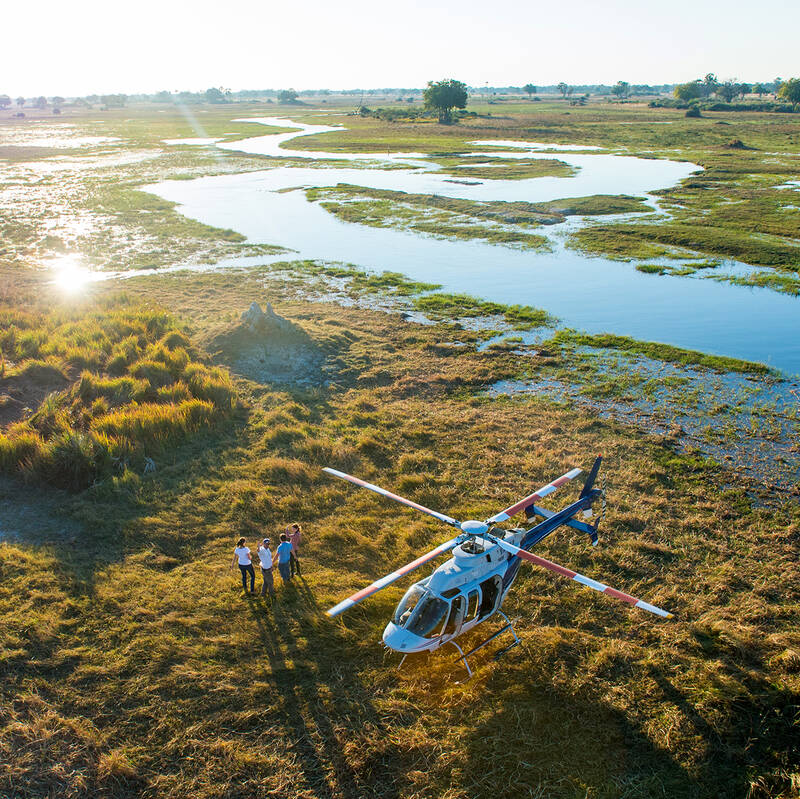
Helicopter Flight - Botswana
Various: from 30 minutes to half a day.
Low-flying, agile and offering superb views, helicopters are an ideal way to move around the Okavango Delta.You can use them instead of fixed-wing inter-lodge transfers or as an addition to other wildlife watching activities, and of course, helicopters can hover to allow that perfect pic, whereas fixed-wings can’t.
More about Helicopter FlightOther lodges in Moremi Game Reserve
Alternative places to stay in this same area.
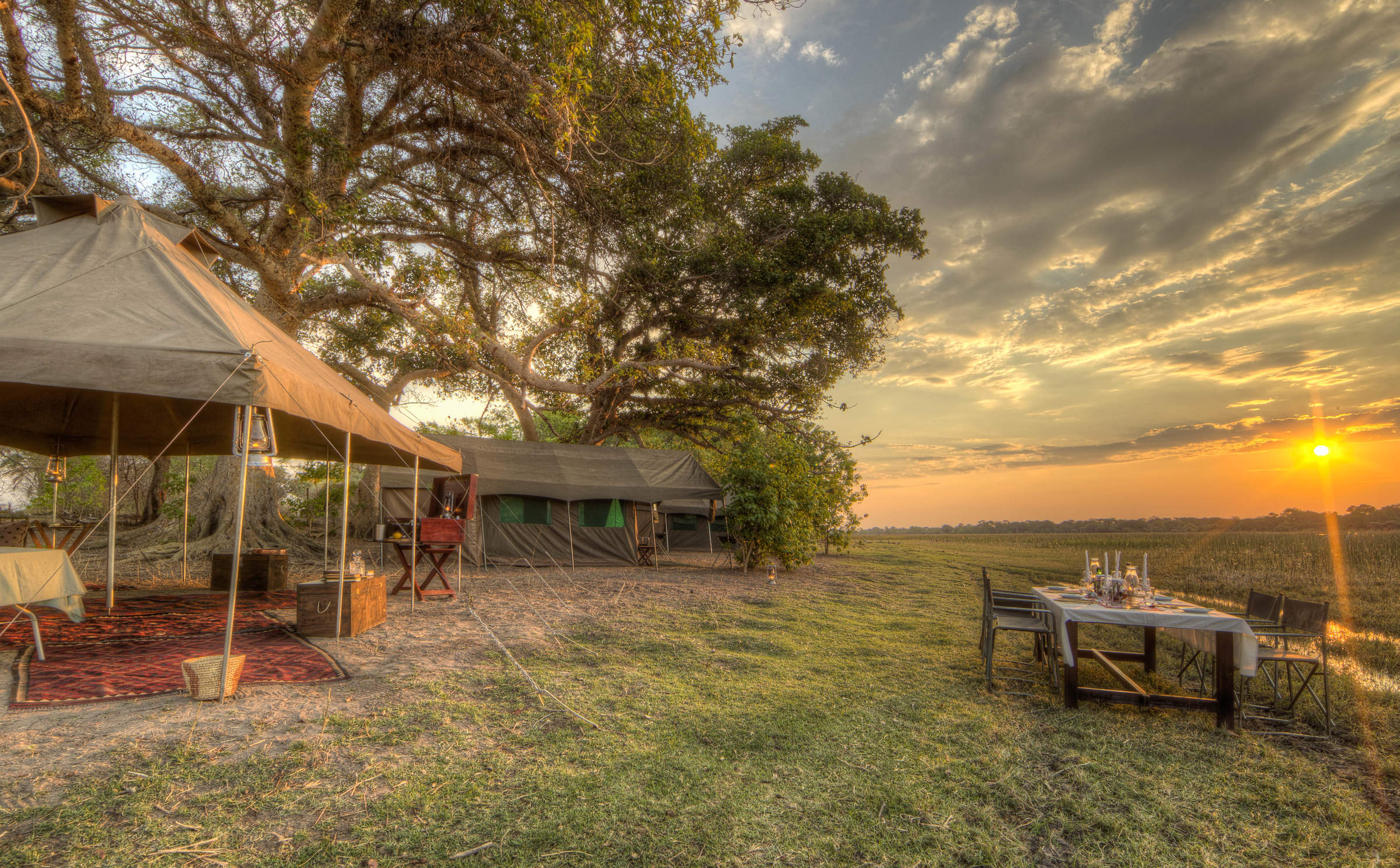
Private Mobile
The Botswana Private Mobile Safari has no fixed location; it's exclusive to your group and comes with a top professional guide. Expect comfortable camping, great food, and a superb wildlife experience wherever you decide to go.
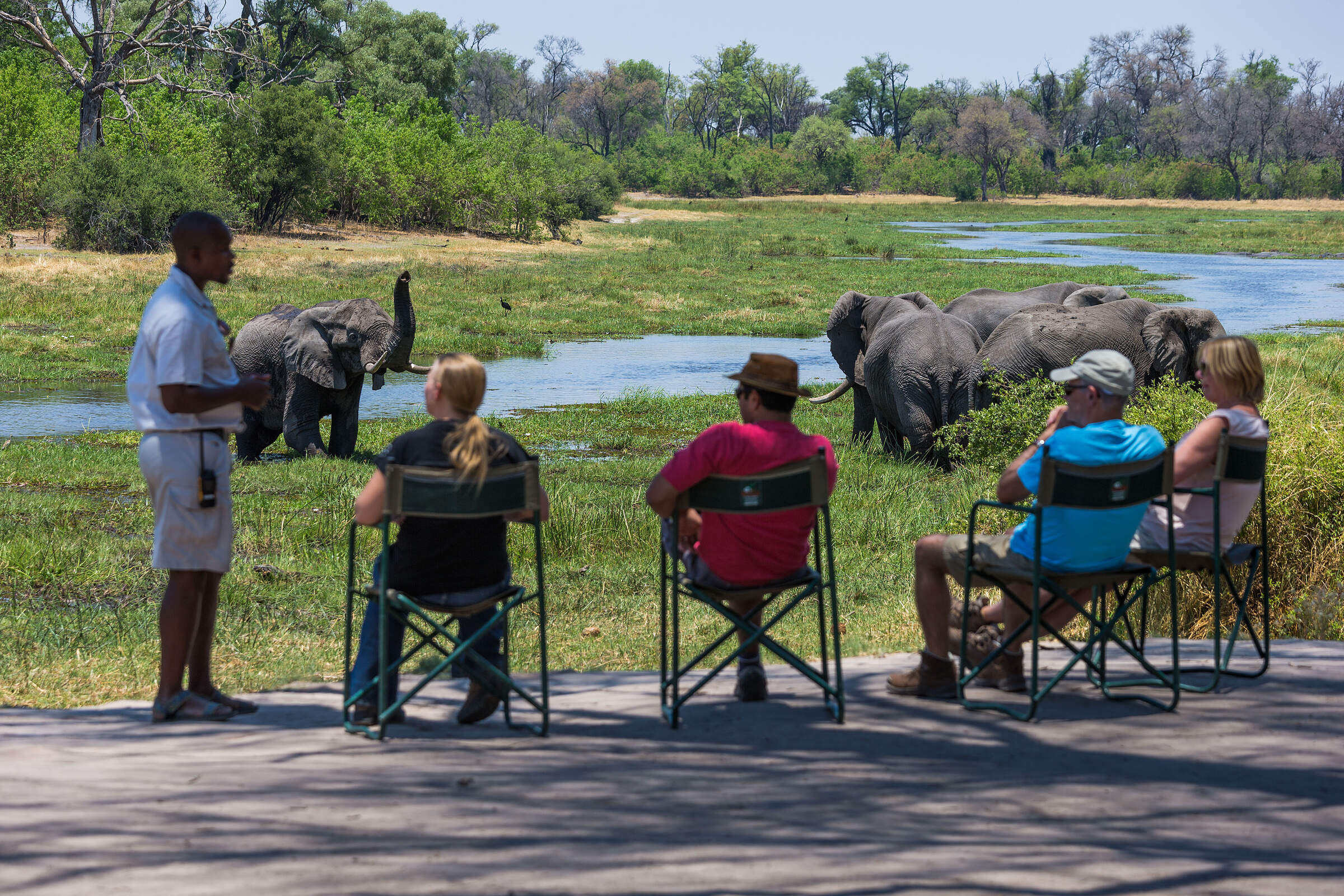
Machaba Camp
Overlooking the Khwai River to Moremi Game Reserve beyond, the classic Machaba Camp combines comfort with excellent game viewing.
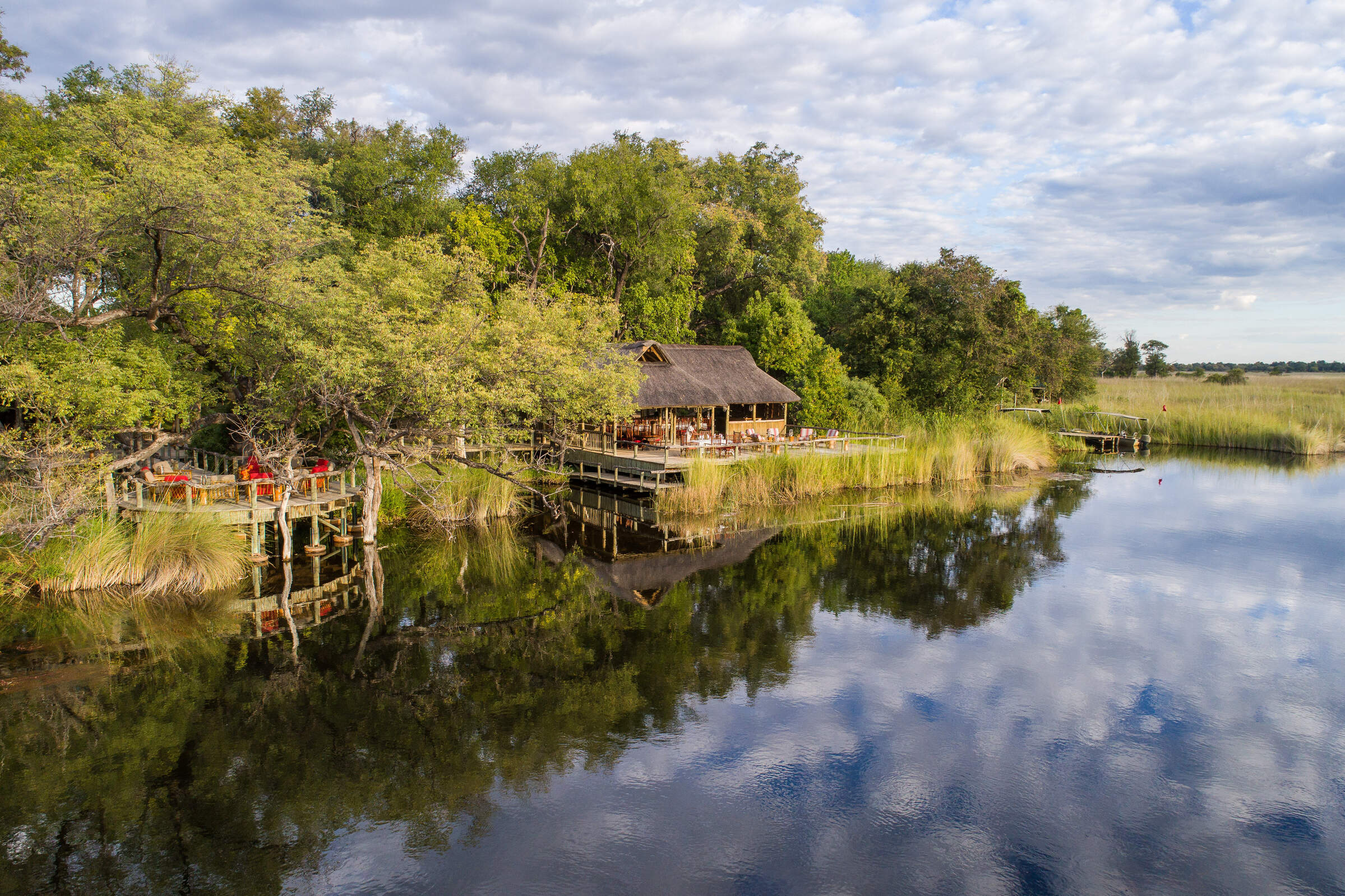
Xakanaxa
Camp Xakanaxa is a well-established traditional camp beside a huge lagoon within the Moremi Game Reserve, with access to some superb wildlife viewing.
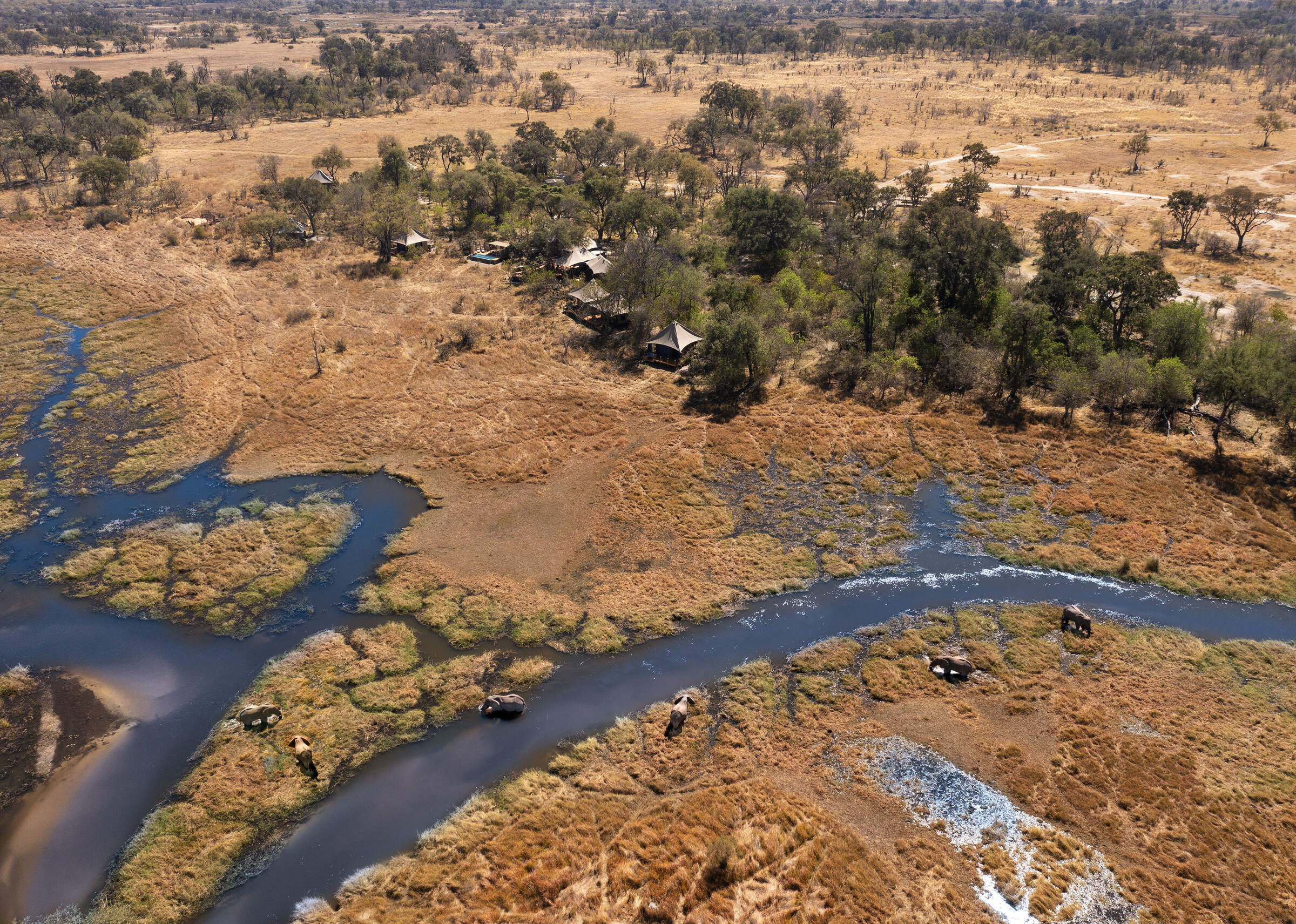
Khwai Lediba
Khwai Lediba offers a traditional African safari experience, with very comfortable tented accommodation, in a fantastic game area north of the Moremi Game Reserve.
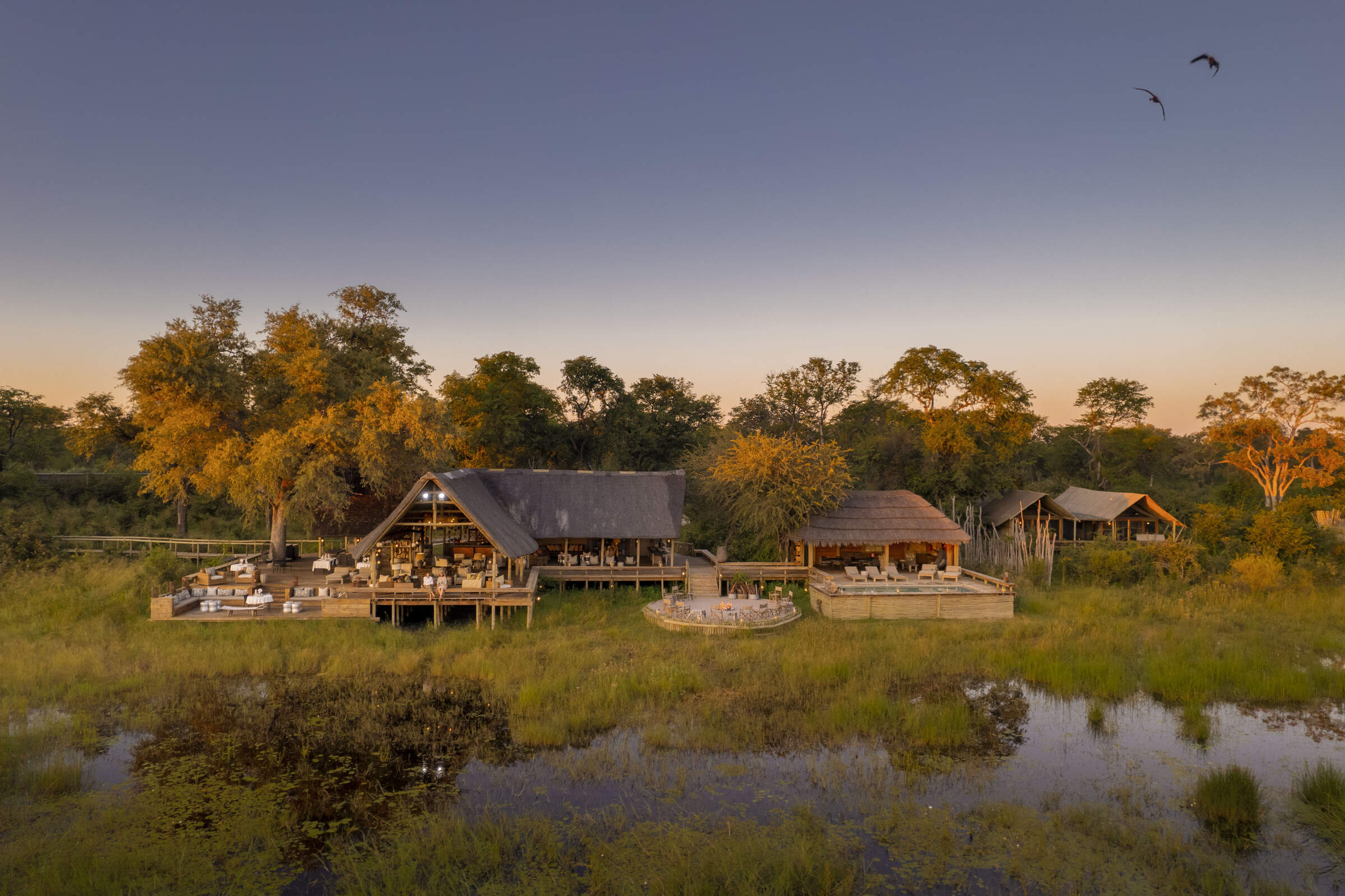
Sable Alley
Smart, independent and well-run, Sable Alley overlooks a beautiful, hippo-filled lagoon within the diverse Khwai Private Reserve.
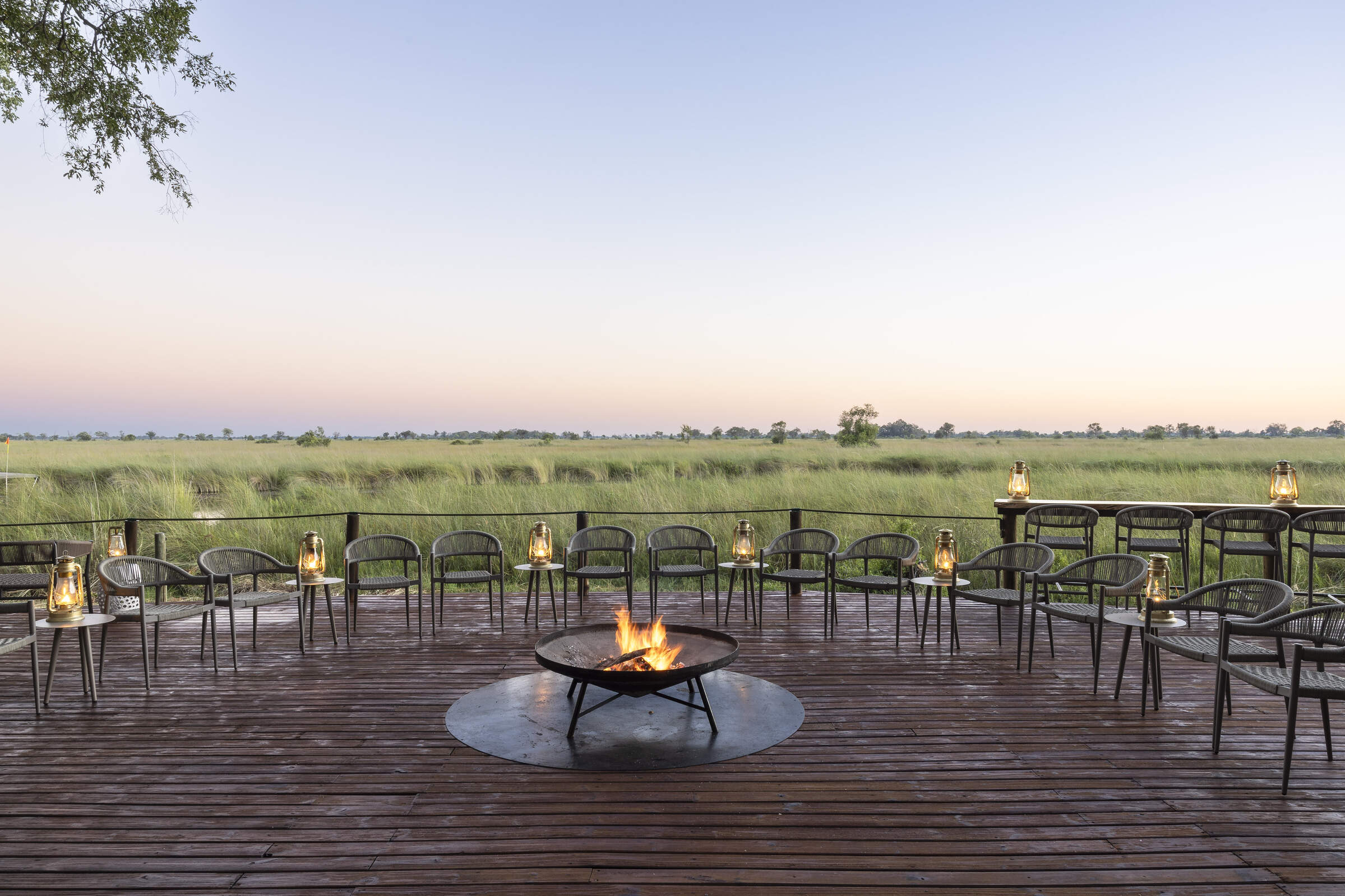
Okuti
With an innovative design and good service, Okuti Camp offers game drives and boat trips in a beautiful, game-rich part of Moremi Game Reserve.
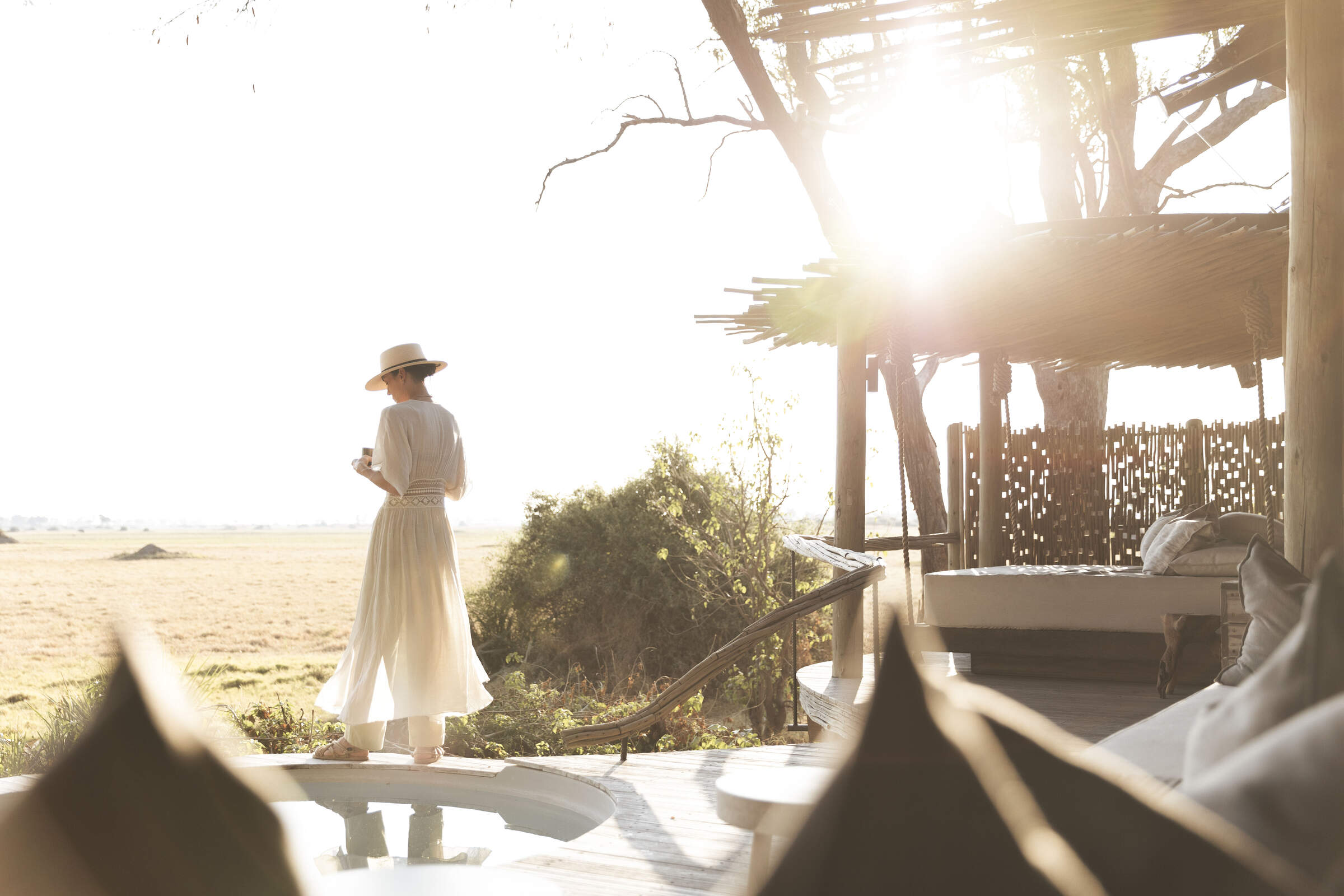
Mombo Camp
Mombo is one of Botswana's most exclusive safari camps, set in a beautiful, remote location within the Moremi Game Reserve and with exceptional game densities.
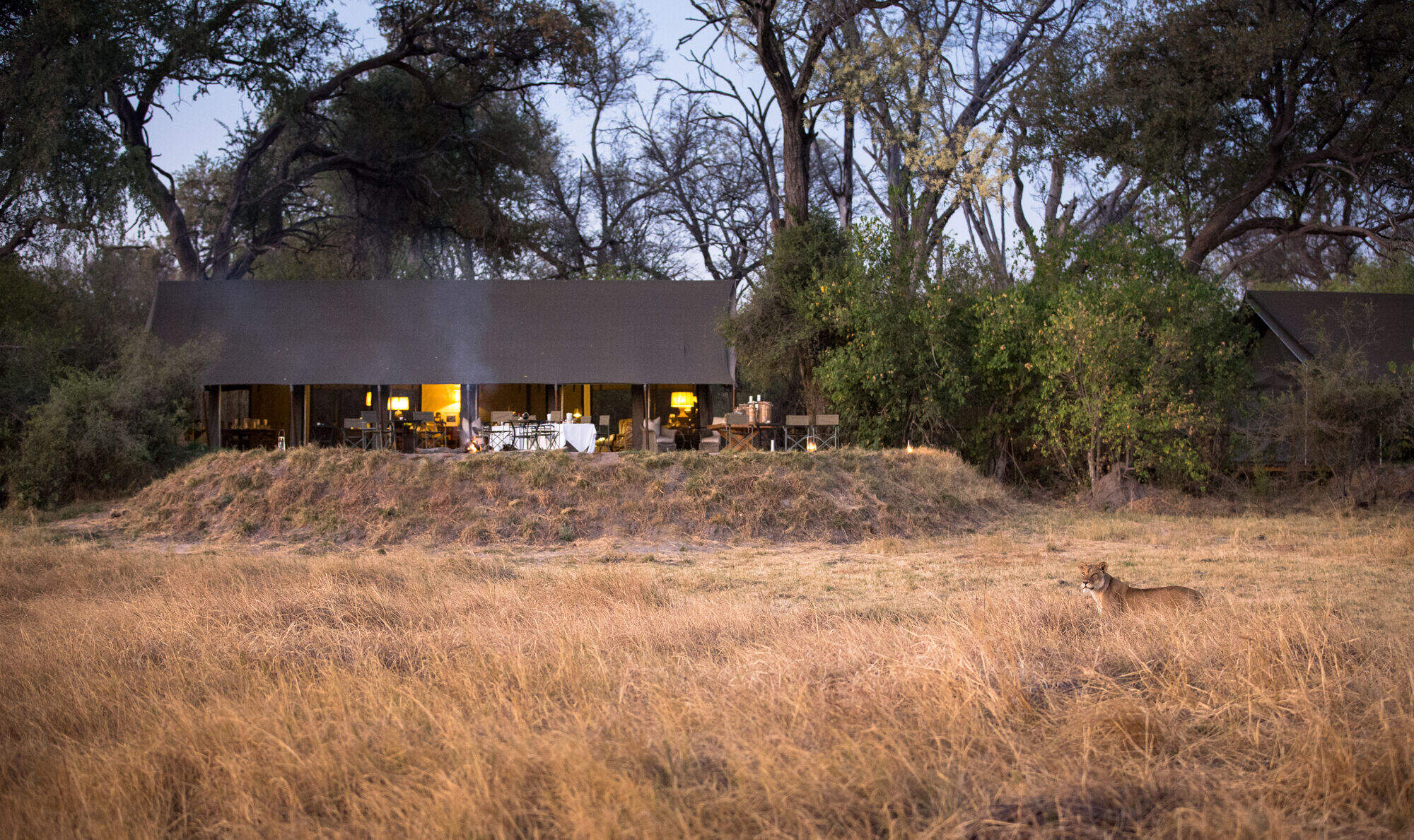
Little Machaba
Overlooking the Khwai River and Moremi Game Reserve beyond, Little Machaba is a classically designed camp with very comfortable tents in a great game-viewing area.
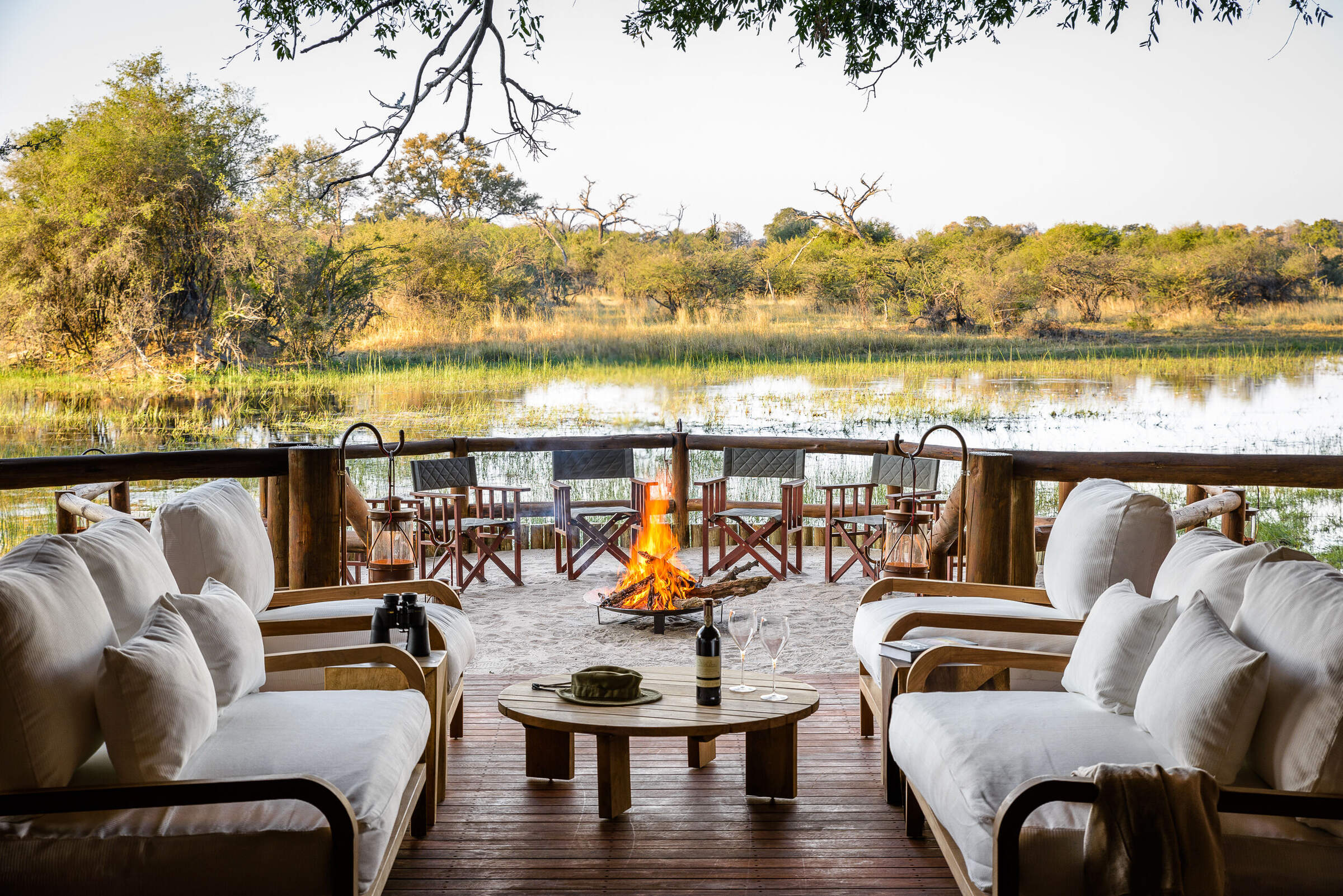
Chief's Camp
Chief's Camp is situated on Chief's Island, within the Okavango Delta's Moremi Game Reserve. Experience one of Botswana's top game-viewing areas by 4WD and mokoro.
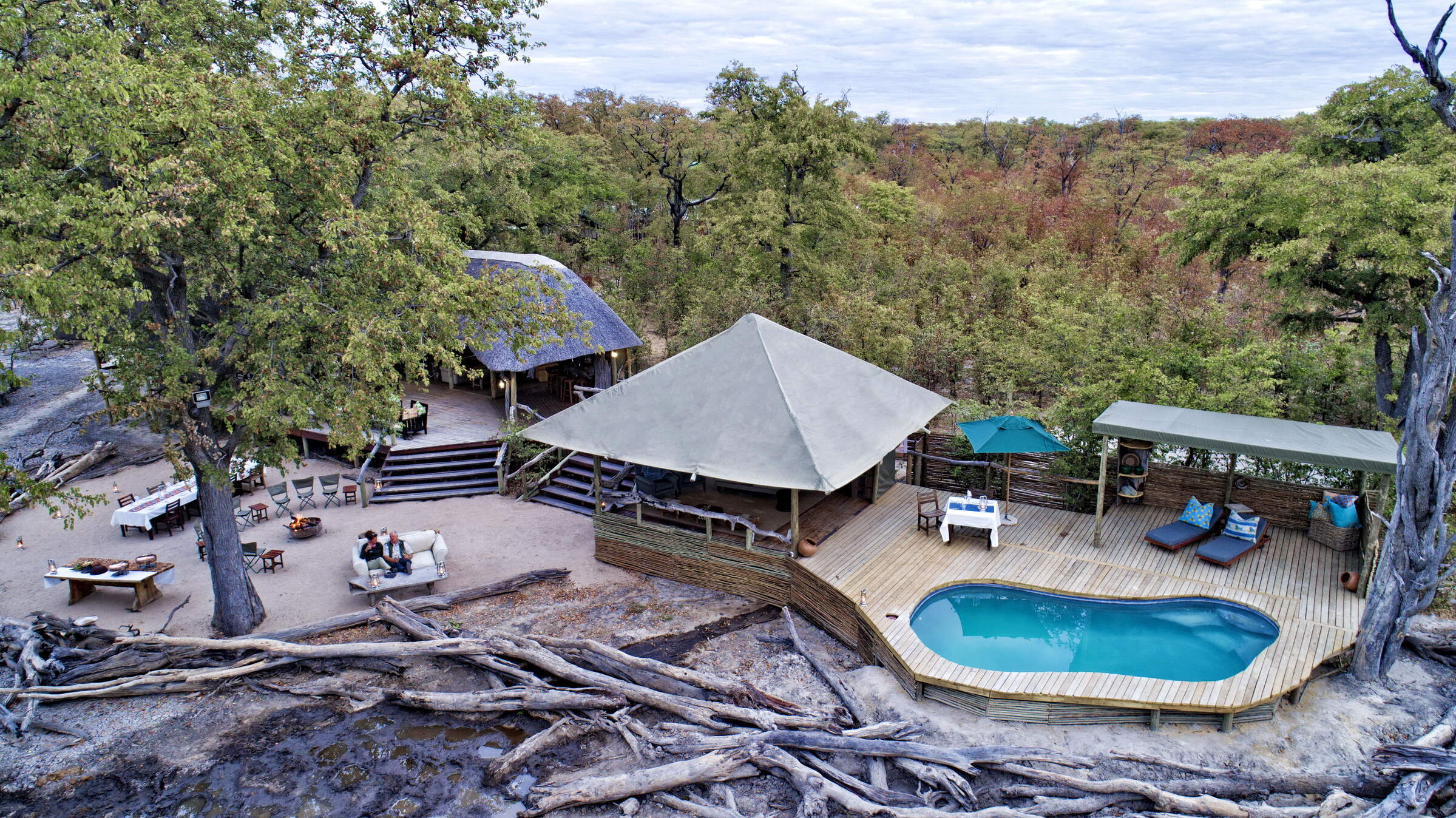
Elephant Pan
Fairly rustic, and relatively inexpensive, Elephant Pan overlooks a natural waterhole that attracts an almost constant parade of animals.
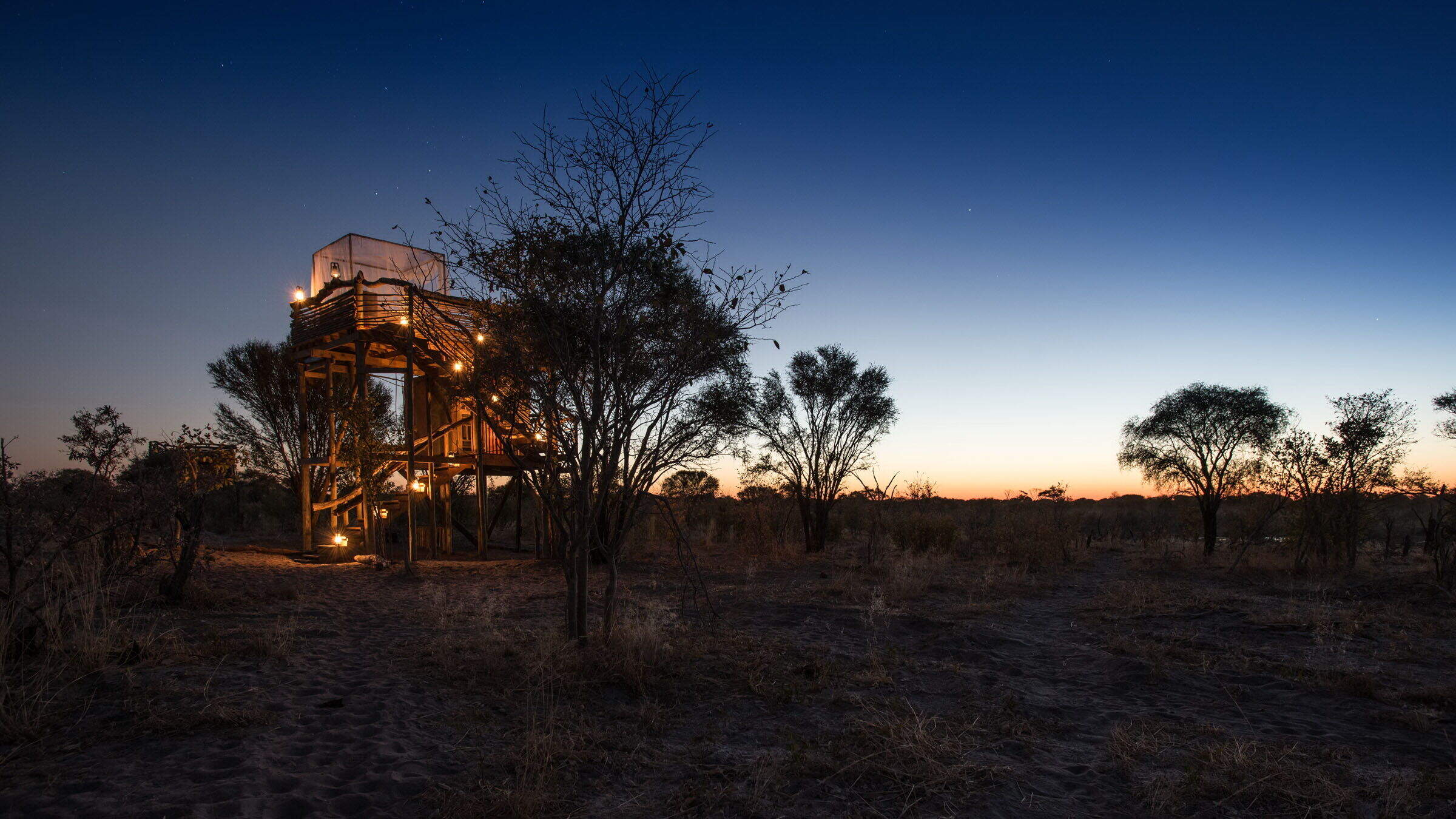
Skybeds
Situated in a private reserve close to Moremi Game Reserve, Skybeds offers a simple yet wonderful opportunity to sleep under the stars and watch wildlife from your bed.
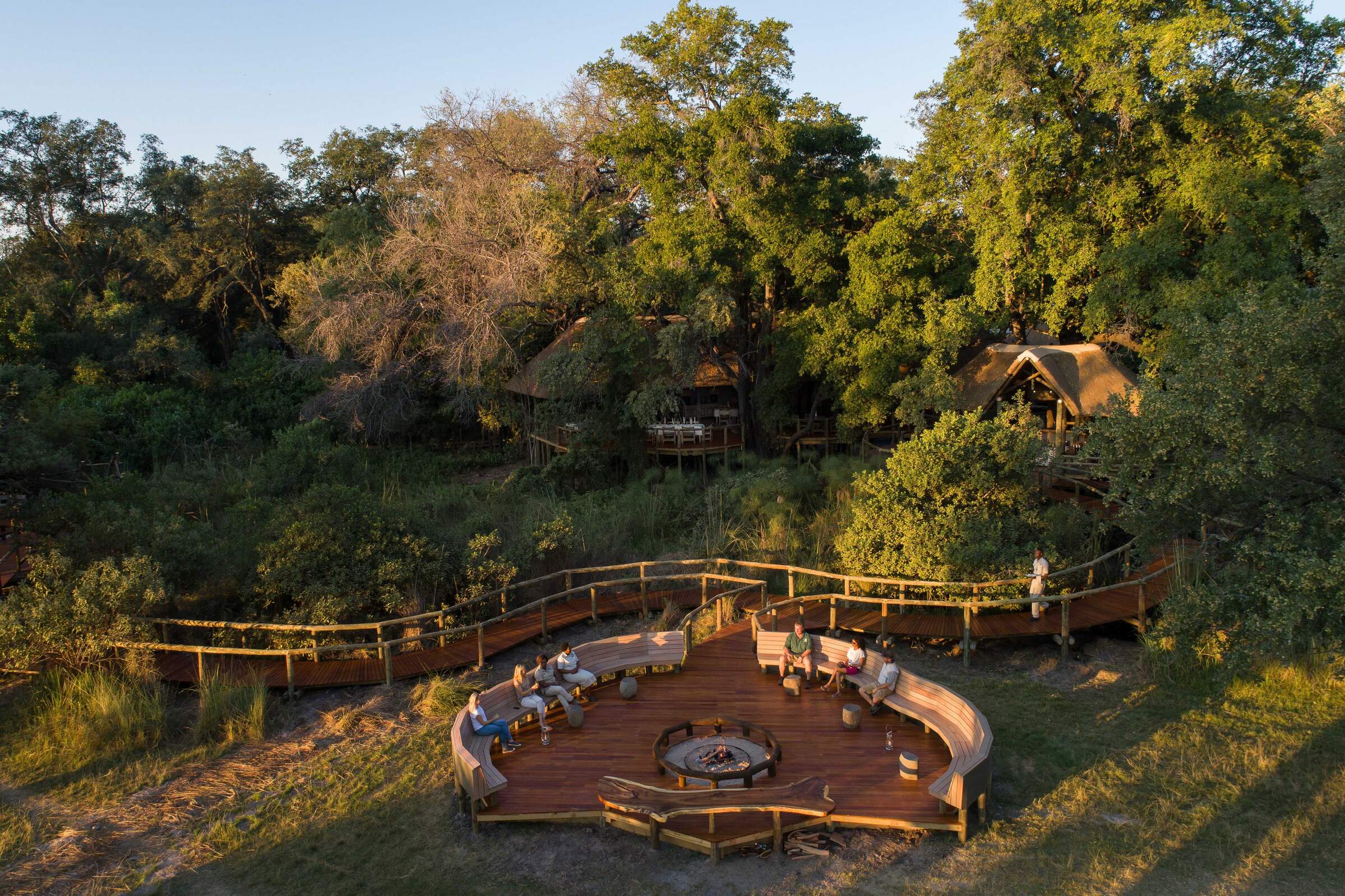
Camp Moremi
In one of the best locations for game viewing in Botswana, Camp Moremi sits at the tip of the Mopane Tongue, overlooking Xakanaxa Lagoon.
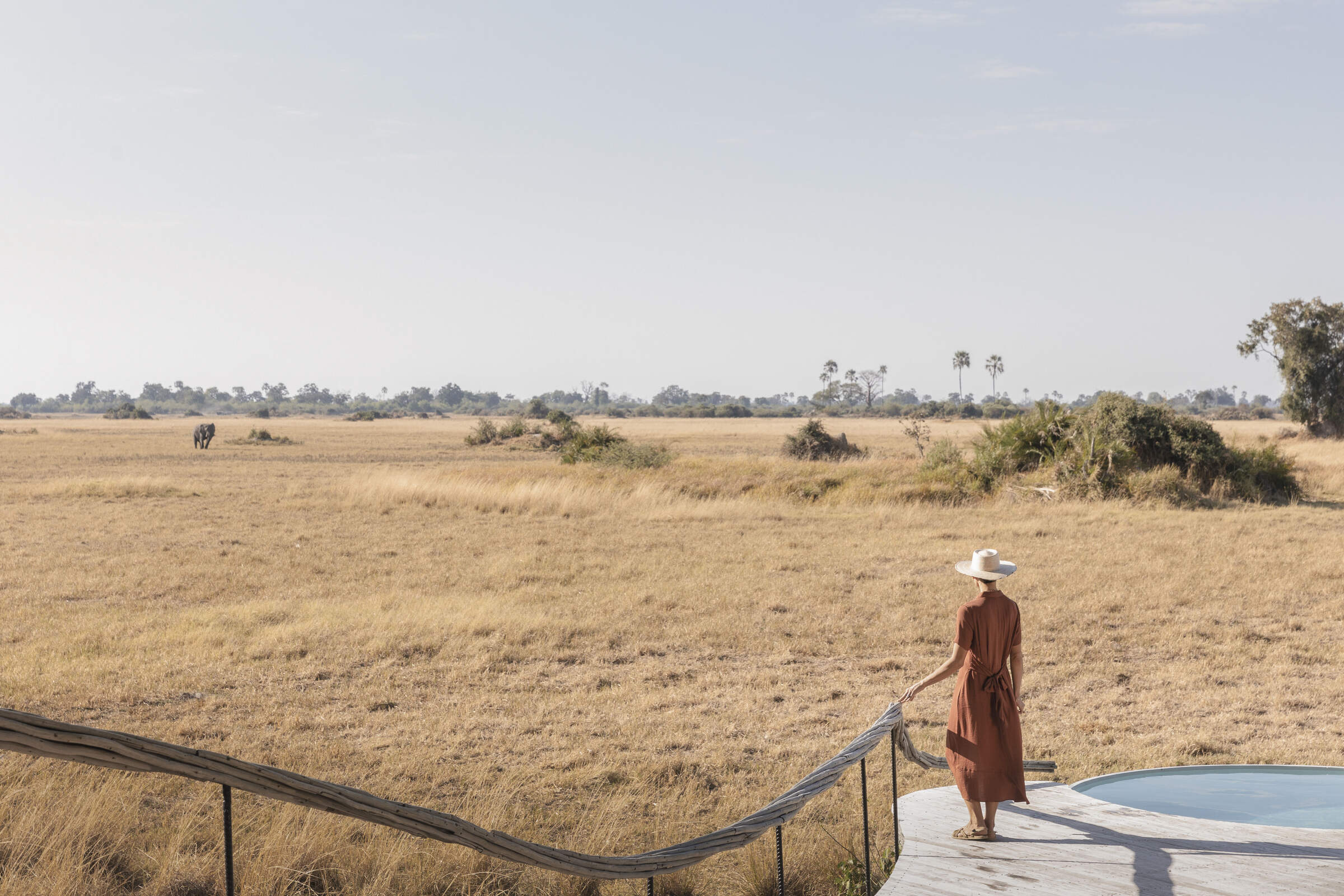
Little Mombo
One of Botswana's top safari camps, Little Mombo stands on the north side of Chief's Island, in the heart of the Okavango Delta's Moremi Game Reserve.
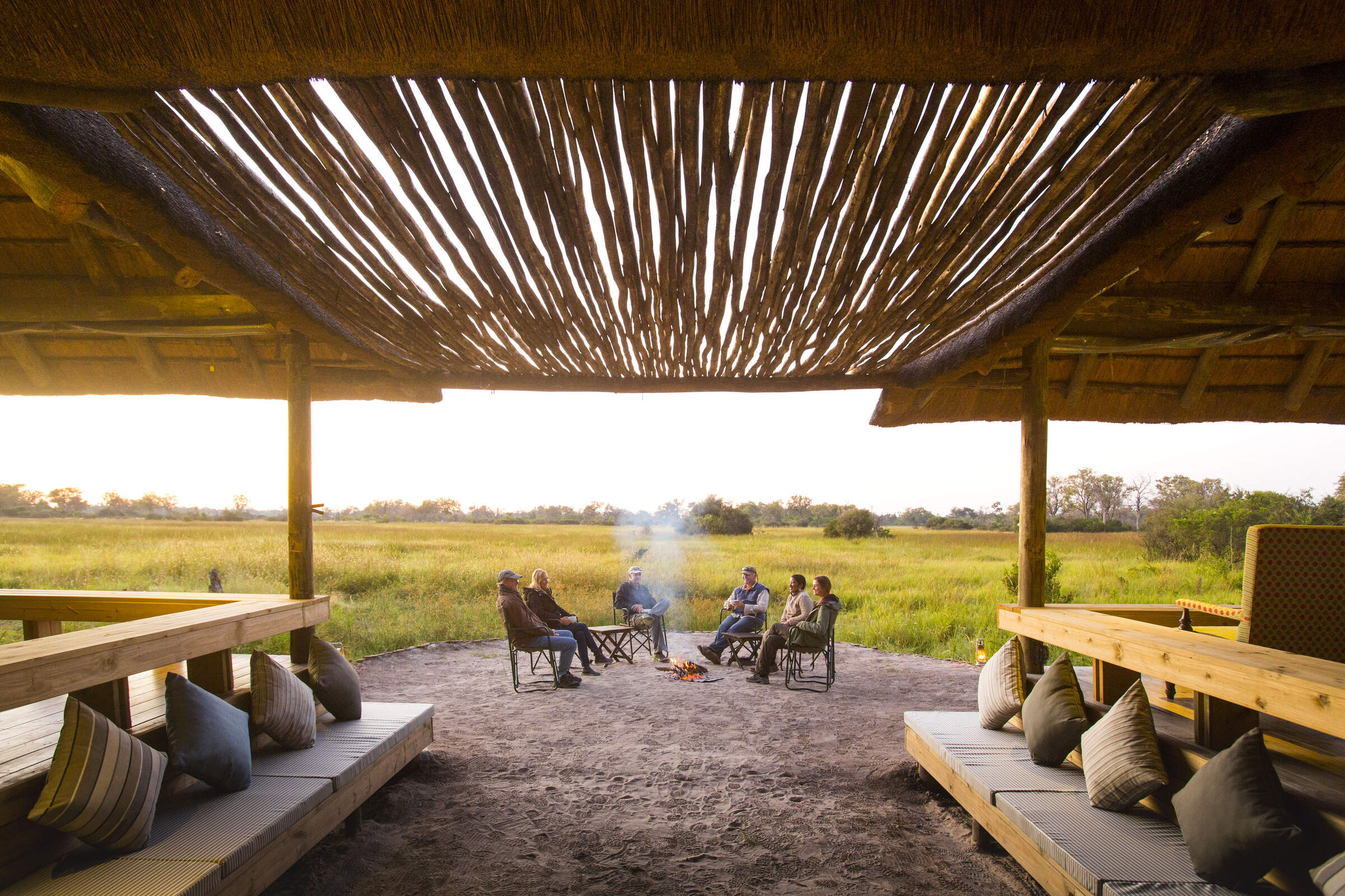
Little Sable
Little Sable camp is located in the Khwai Private Reserve – which borders the Moremi Game Reserve and Chobe
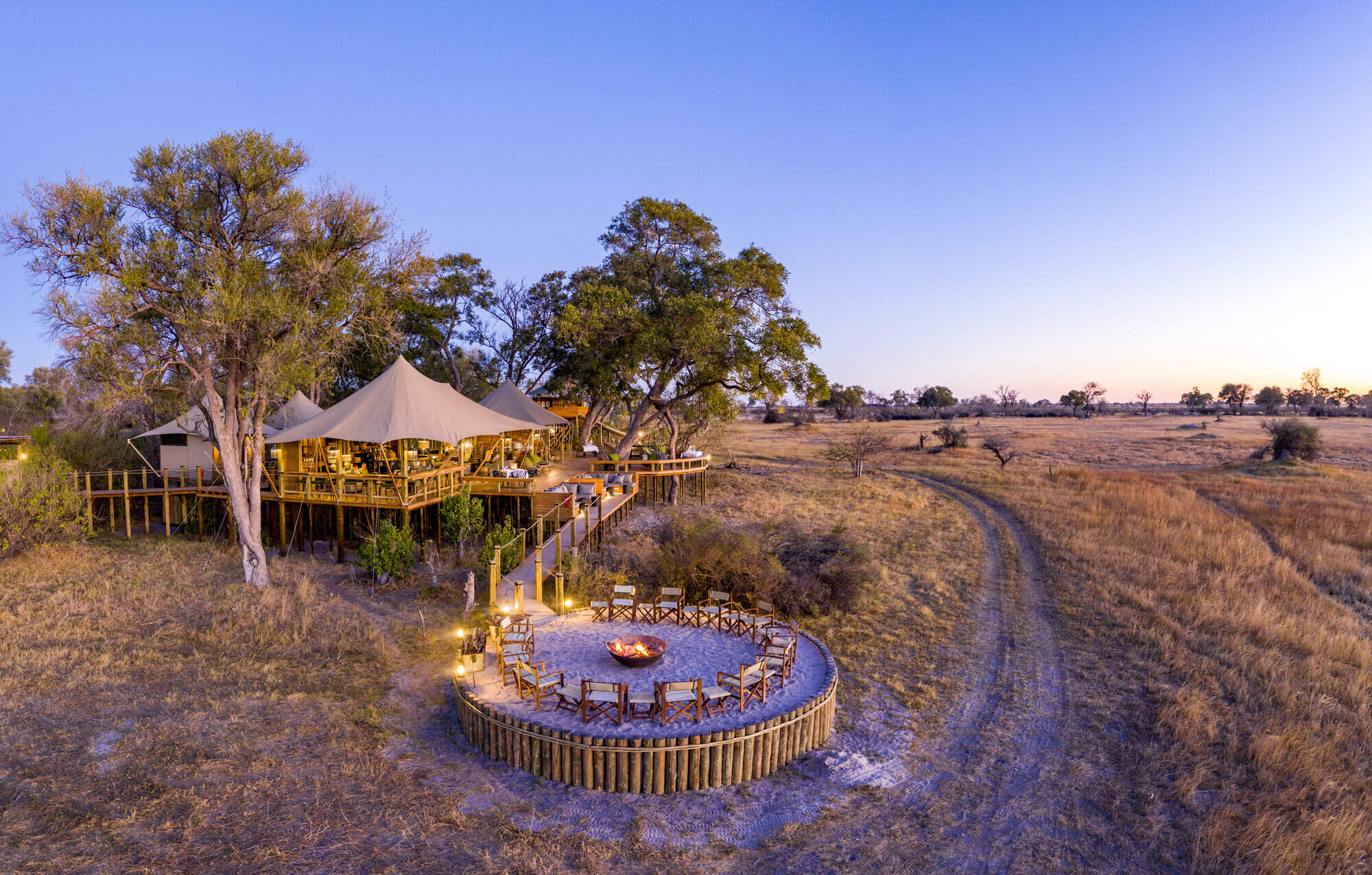
Tuludi
Tuludi is a brand new luxury camp, within the Khwai Private Reserve, built on a site under giant leadwood trees and overlooking the Okavango Delta floodplains.
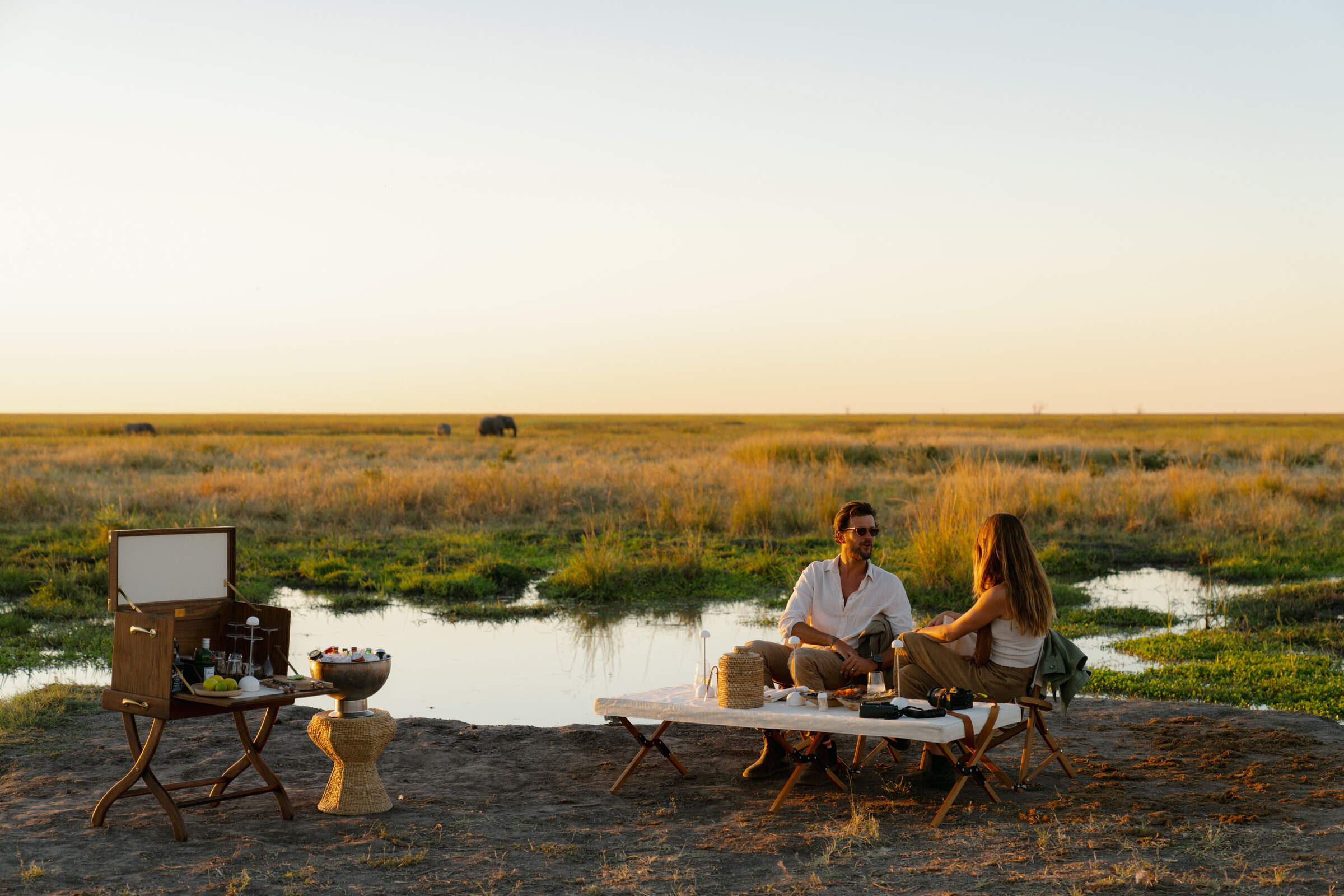
Mokete Camp
New for July 2023, Mokete has 9 luxurious tents, raised on platforms above the surrounding bush and offers an experience of the Kalahari Wilderness.
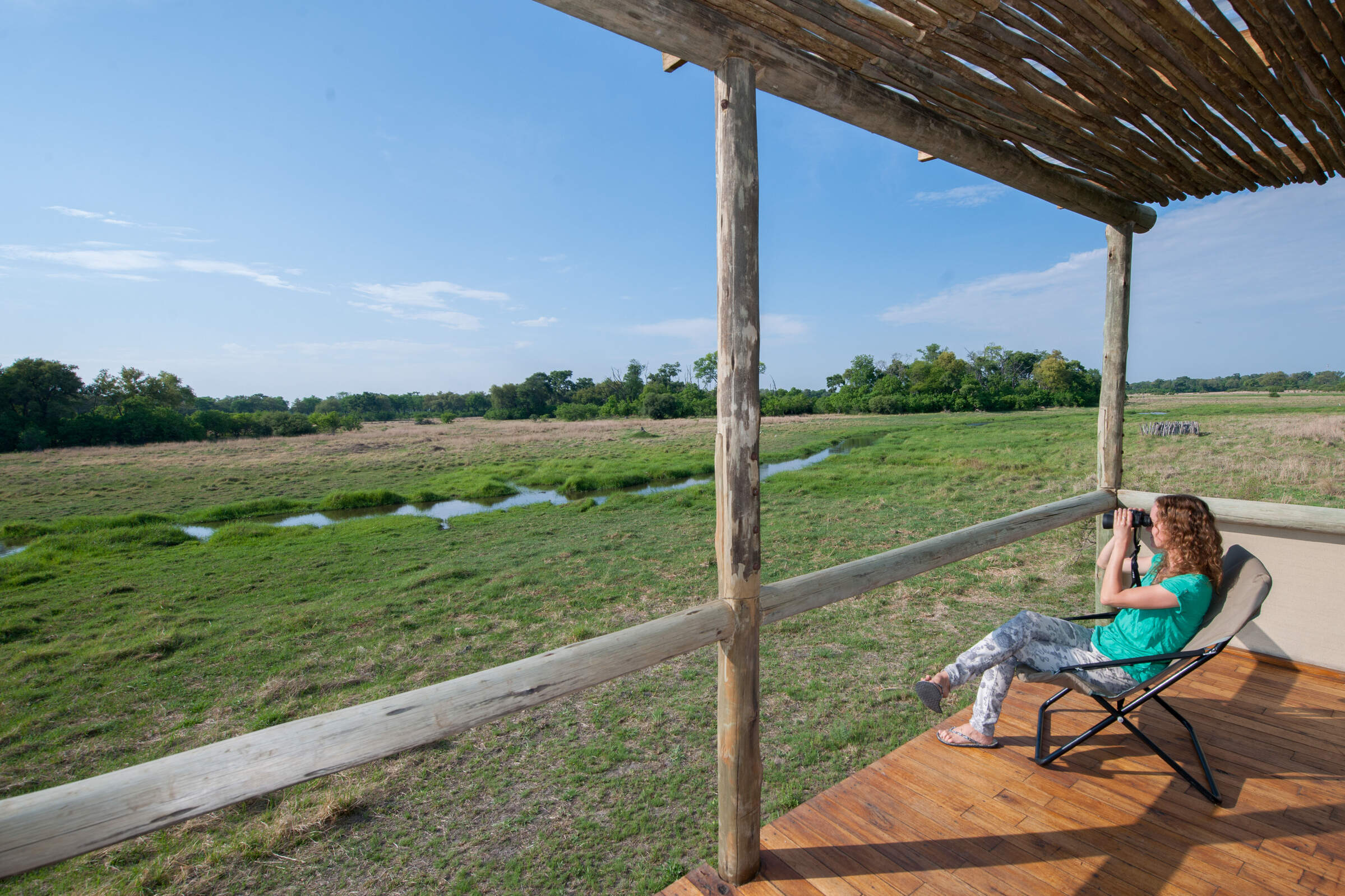
Sango Safari Camp
Sango offers comfortable tented accommodation, without some of the frills often found in Botswana's camps, with an area that's scenic and gets excellent, consistent game sightings.
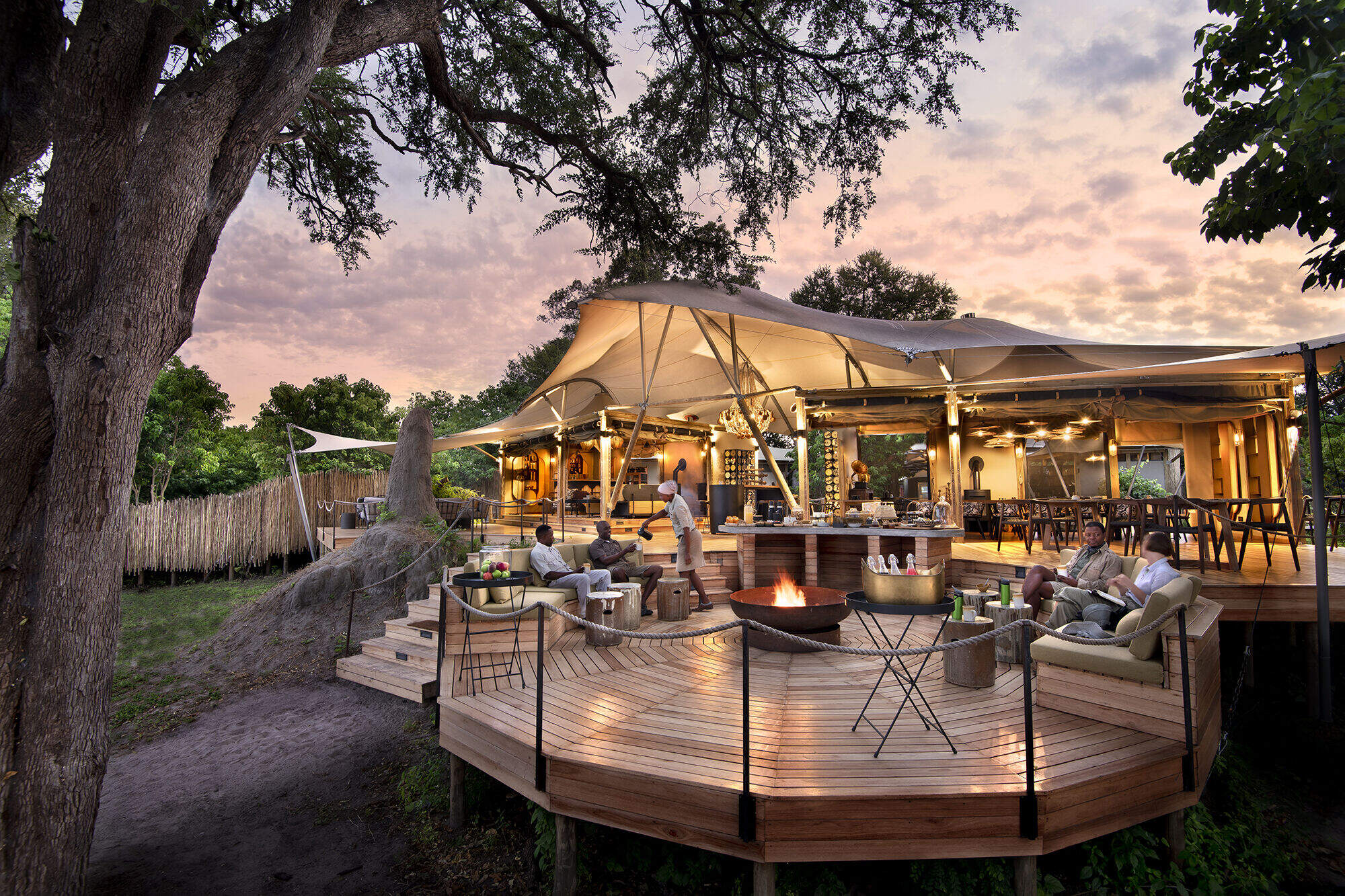
Khwai Leadwood
Khwai Leadwood is a luxurious lodge located in the heart of the Khwai Community Concession, offering guests exceptional service, stunning scenery, and unforgettable wildlife experiences.
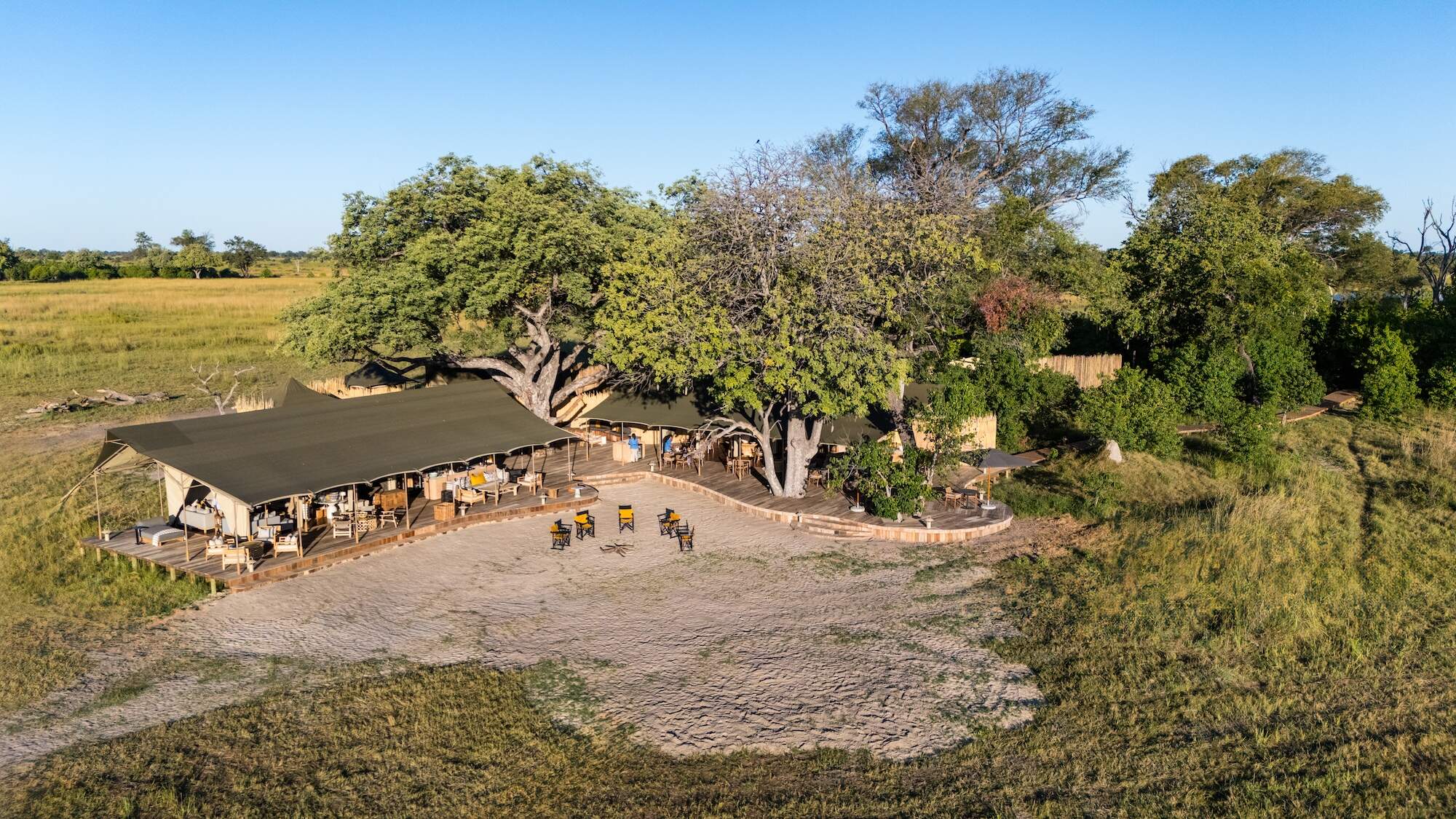
Monachira
Opened in May 2025, Monachira is a stylish lodge in the Okavango Delta with a focus on water-based activities.
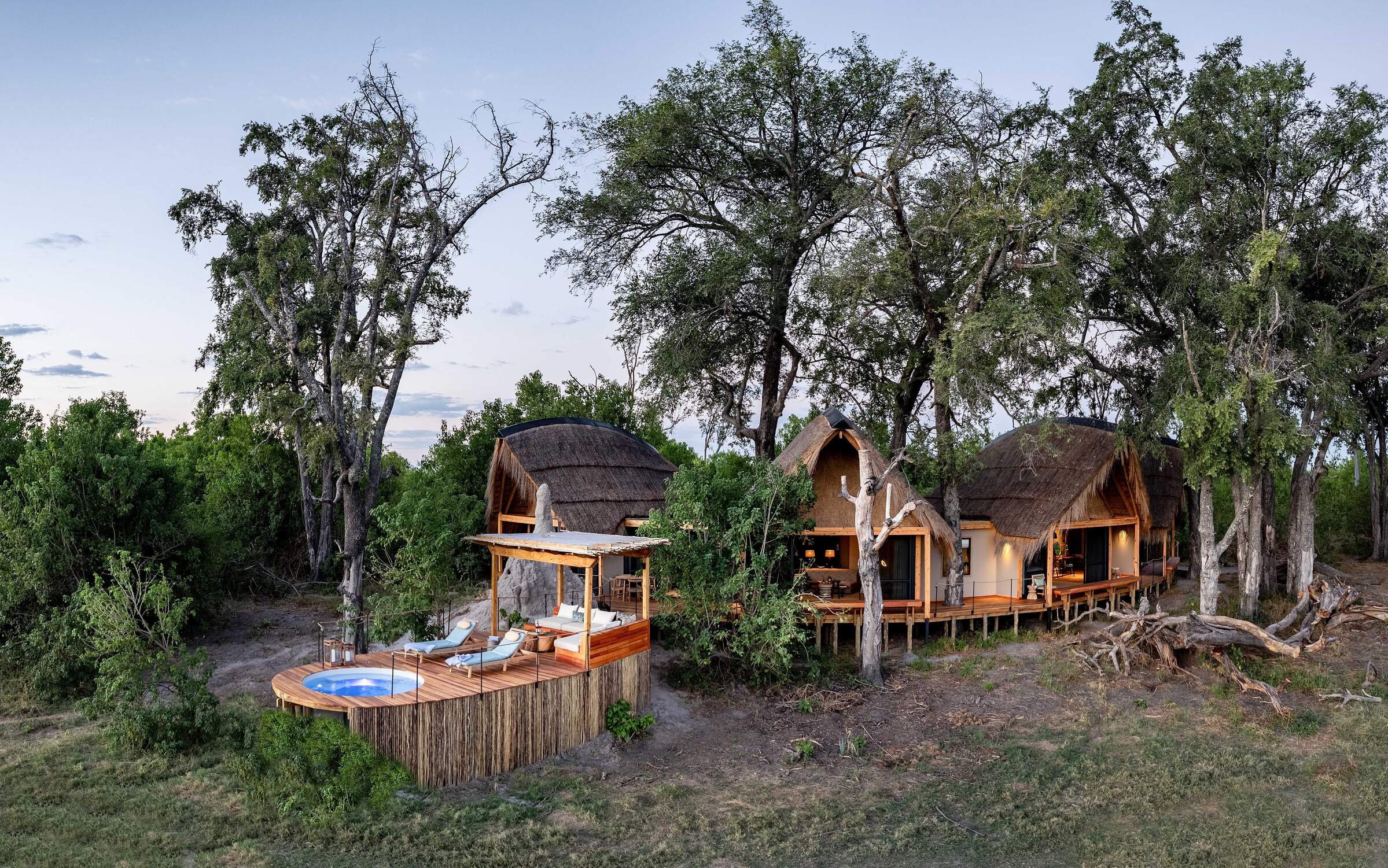
Tawana
An exclusive new lodge on the banks of the Gomoti River, Tawana has just eight very spacious suites.
When to go to Moremi Game Reserve
Our month by month guide: What it's like to visit Xigera Safari Lodge in Moremi Game Reserve
Jan
Feb
Mar
Apr
May
Jun
Jul
Aug
Sep
Oct
Nov
Dec
Moremi Game Reserve in January
January is the height of the rainy season in Moremi Game Reserve. Evening showers and occasional thunderstorms cool the air, making temperatures more comfortable than the peak heat of October to December. Wildlife disperses across the landscape, but the Khwai River area still offers good sightings of lions and elephants.
January is also an exceptional time for birdwatching, with migratory species abundant and breeding activity in full swing. The lush greenery creates stunning photographic opportunities, while mokoro excursions allow for tranquil exploration of waterways. Despite the rain, Moremi’s diverse ecosystems, including mopane forests and waterways, offer unique wildlife viewing opportunities. Lower visitor numbers mean better rates at camps and lodges.
- Warm with occasional heavy thunderstorms
- Spectacular birdlife throughout the reserve
- Wildlife dispersed in the floodplains and woodlands
- Good availability in camps and lodges
Our view
A good time to visit, with pros & cons
Weather in January
Moremi Game Reserve in February
February in Moremi Game Reserve sees the wet season continue, with heavy evening rains and cooling temperatures. The reserve is green and vibrant, alive with insects, smaller animals, and many animals are raising their young. The Xakanaxa Lagoon area is particularly rich in wildlife diversity at this time.
While thicker vegetation makes spotting larger animals more challenging, patient observers may encounter leopards or antelope species. Birdwatching remains a highlight, with over 500 species, including many in colourful breeding plumage. High water levels make boat trips a wonderful way to explore the intricate waterways of the Delta. Visitor numbers are low, offering a more intimate safari experience and better availability at luxury camps.
- Warm temperatures with some thunderstorms
- Abundant birdlife, including breeding species
- Wildlife raising young across the reserve
- Game viewing improving in central areas
- Low visitor numbers and good camp availability
Our view
This is not a great time to visit
Weather in February
Moremi Game Reserve in March
March marks the end of the rainy season, with fewer storms and more sunny days. The landscape remains lush, and wildlife activity increases as animals finish raising their young. This is an ideal time for photography, with the green scenery providing dramatic backdrops.
While thick vegetation can still make wildlife spotting challenging, patient observers may be rewarded with sightings of predators like lions and leopards, especially in the Khwai River area. Birdwatching continues to be exceptional, with many migratory species still present. Water-based activities like boat cruises offer unique perspectives on the delta's wildlife. With fewer visitors, March provides a quieter, more exclusive safari experience in Moremi’s mopane forests to expansive floodplains.
- Variable weather, rains easing off with occasional thunderstorms
- Many animals finishing raising their young
- Excellent birdwatching and photography opportunities
- Few visitors and lower rates in camps
Our view
A good time to visit, with pros & cons
Weather in March
Moremi Game Reserve in April
April in Moremi Game Reserve typically signals the end of the rainy season, with clearer skies and a vibrant green landscape. Night temperatures begin to drop, particularly in the southern areas of the reserve. Game viewing improves as vegetation starts to thin, making it easier to spot wildlife. This is also an excellent time for boat excursions, offering intimate encounters with aquatic wildlife and bird species.
Birdwatching remains highly rewarding, with many species still nesting or breeding. The Xakanaxa Lagoon area is especially rich in wildlife diversity during this period. With the shoulder season underway, visitors can enjoy better value at top camps. April strikes a wonderful balance of pleasant weather, diverse wildlife sightings, and fewer tourists.
- Cooler evenings with occasional showers
- Lush green landscapes after the rains
- Improved predator-prey interactions
- Quiet period with relatively low rates
- Water levels rising - ideal for boat safaris
Our view
A good time to visit, with pros & cons
Weather in April
Moremi Game Reserve in May
May is one of the best months to visit Moremi Game Reserve. The annual floodwaters from Angola start to reach the Delta, creating ideal conditions for water-based safaris. Cooler mornings and evenings heighten predator activity, although tall grasses in some areas may still obstruct views.
The Khwai River and Chief’s Island are prime locations for spotting large herds of elephants and buffalo. Birdwatching remains excellent, with over 500 species recorded in the reserve. May is perfect for combining game drives and boat excursions, offering a diverse and rewarding safari experience. Clear, crisp evenings also provide outstanding stargazing opportunities. As shoulder season ends, value-conscious travellers should book early to secure availability at camps and lodges before peak rates apply.
- Cool mornings and evenings with little rain
- Game viewing improves as grasses thin
- Increased predator activity in the reserve
- Final month of shoulder season - rates still reasonable
- Availability becomes limited as demand rises
Our view
A very good time to visit
Weather in May
Moremi Game Reserve in June
June marks the start of the dry season in Moremi Game Reserve. Mornings and evenings are cool, sometimes reaching freezing at night, while daytime temperatures rise to 25-30°C/77-86°F with clear skies. The air clarity is excellent for photography. As surface water diminishes, wildlife starts to congregate around remaining water sources.
Game viewing improves significantly throughout Moremi, but especially in the Khwai River area and around Xakanaxa Lagoon. June is perfect for night drives, which are possible in areas outside the reserve. Birdwatching remains excellent, with many water birds concentrated around permanent water bodies. With peak season approaching, many camps and lodges are becoming much busier and so booking well in advance is wise.
- Warm days, cold nights in Moremi
- Excellent conditions for wildlife photography
- Animals congregating around water sources
- Vegetation thinning, improving visibility
- Peak season starts, rates increase
Our view
Fantastic: the very best time to visit
Weather in June
Moremi Game Reserve in July
July in Moremi Game Reserve offers cool mornings and evenings, combined with excellent game viewing. The thinning vegetation and concentration of wildlife around water sources make this one of the best months for safari experiences. The Khwai River area and Chief's Island are particularly rewarding, with high chances of spotting big cats and large herds of elephants and buffalo.
Water-based activities like motorboat cruises on the permanent waterways provide unique wildlife viewing perspectives. Birdwatching remains excellent, with large concentrations of water birds. July is ideal for photography, with clear skies and animals gathering at waterholes. Night drives offer opportunities to spot nocturnal species.
- Comfortable days, cold nights in the reserve
- Excellent game viewing as vegetation recedes
- Khwai area becomes busy with visitors
- Private concessions offer exclusive experiences
- Peak season with high rates in most camps
Our view
Fantastic: the very best time to visit
Weather in July
Moremi Game Reserve in August
August is a popular time to visit Moremi Game Reserve, coinciding with peak safari season. Temperatures are generally cold at night and comfortable during the day, rising towards month-end. Wildlife congregates around remaining water sources, making game viewing exceptional.
The Khwai River area offers excellent predator sightings, though can be very busy with travellers. August is one of the best times to experience the delta floods at their peak, ideal for boating safaris. Birdwatching is rewarding, with large concentrations of water birds. The clear, dry conditions create spectacular sunsets and stargazing opportunities.
- Dry, warm days and cool nights in Moremi
- Fantastic wildlife watching, especially in the Delta
- Okavango flood waters typically at their peak
- Stargazing opportunities on clear nights
- High rates and limited availability in camps
Our view
Fantastic: the very best time to visit
Weather in August
Moremi Game Reserve in September
September in Moremi Game Reserve sees warming daytime temperatures while nights remain cool. The dry conditions create a hazy atmosphere, resulting in stunning sunsets. Game viewing is excellent, with large numbers of elephants and buffalo congregating in the Khwai River area and around Xakanaxa Lagoon. Predator sightings are frequent, especially around water sources.
September is ideal for walking safaris and night drives, offering unique wildlife encounters outside the borders of the reserve. Birdwatching remains rewarding, with migrant birds beginning to return. Water-based activities provide close encounters with aquatic wildlife whilst the clear night skies offer excellent stargazing opportunities.
- Warmer days, cool nights in the reserve
- Prime month for wildlife viewing in Moremi
- Large elephant herds visible near water
- Hazy conditions create dramatic sunsets
- Peak season rates, many lodges fully booked
Our view
Fantastic: the very best time to visit
Weather in September
Moremi Game Reserve in October
October is one of the hottest and driest months in Moremi Game Reserve. The lack of water and vegetation results in excellent big-game viewing, particularly around the remaining water sources. Water levels are lower, limiting some water-based activities, but concentrating wildlife for easier viewing.
October is excellent for walking safaris and night drives, both possible outside the park, which provide unique perspectives on the Okavango’s ecosystems. Birdwatching remains rewarding, with many migrant species arriving. The dry, hazy conditions create dramatic landscapes and stunning sunsets, ideal for photography. The most luxury provide comfortable and cool bases for exploring the reserve during this intense wildlife period.
- Hot days, chance of rain late in the month
- Excellent big game viewing opportunities
- Water activities limited as flood waters recede
- Last month of peak season in Moremi camps
- Migratory birds begin to arrive in the reserve
Our view
Fantastic: the very best time to visit
Weather in October
Moremi Game Reserve in November
November usually marks the end of the dry season in Moremi Game Reserve, with increasing temperatures and humidity often culminating in the first rains. These short, heavy showers bring a flush of green to the landscapes. Wildlife begins to disperse as water becomes more available, but game viewing still remains very good.
November is fantastic for birdwatching, with the arrival of many migrant species. The first rains create spectacular skyscapes and rainbows, offering unique photographic opportunities. Water levels start to rise, gradually improving conditions for mokoro excursions. The prices at luxury camps reduce to shoulder-season levels, offering bargains for value-conscious travellers wanting to balance of wildlife viewing and comfort.
- Hot days, sometimes humid in Moremi
- Increasing likelihood of rain as month progresses
- Wildlife less concentrated but still good viewing
- Arrival of migratory birds enhances birdwatching
- Shoulder season begins, rates become lower
Our view
A good time to visit, with pros & cons
Weather in November
Moremi Game Reserve in December
December in Moremi Game Reserve sees the continuation of the rainy season, bringing some relief to the high temperatures. While game viewing becomes more challenging as wildlife disperses, great sightings can still be had in key areas. The landscape transforms with lush vegetation, creating beautiful scenery. December is excellent for birdwatching, with migratory birds in full attendance and many species breeding.
The rejuvenated waterways enhance boat safari experiences, offering unique perspectives on the Delta's ecosystem. Afternoon thunderstorms create dramatic skies, perfect for landscape photography. Luxury camps offer lower season rates, providing excellent value for experiencing Moremi's diverse wildlife and stunning landscapes during this vibrant time of year.
- Temperatures cooling from October-November highs
- High chance of rain, usually short heavy storms
- Birds in breeding plumage and often including migrants
- Wildlife more dispersed
- Low-season rates available in most camps
Our view
A good time to visit, with pros & cons
Weather in December

Looking for inspiration on where to travel next?
Visit our trip chooser to explore your options and find inspiration for your perfect African adventure
Inspire me